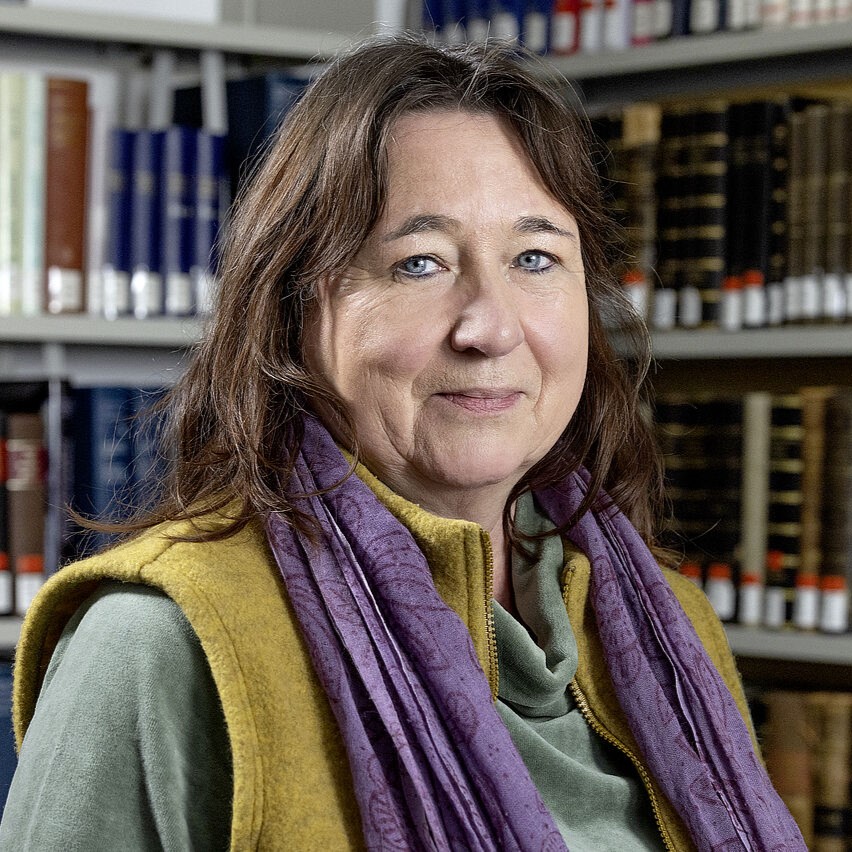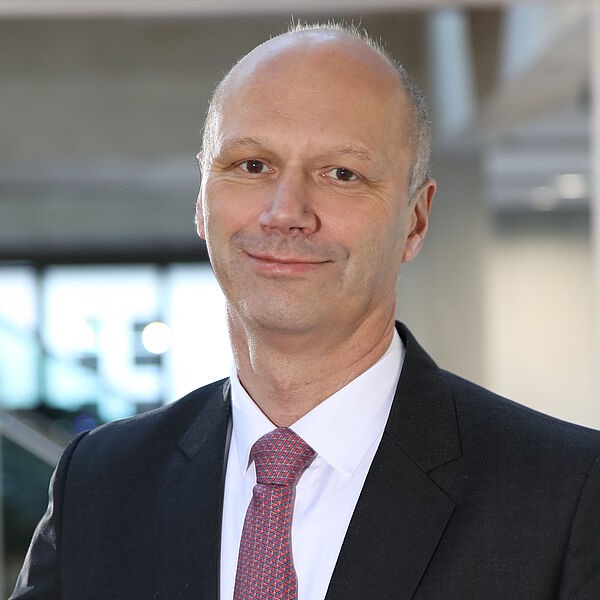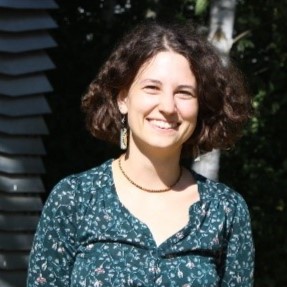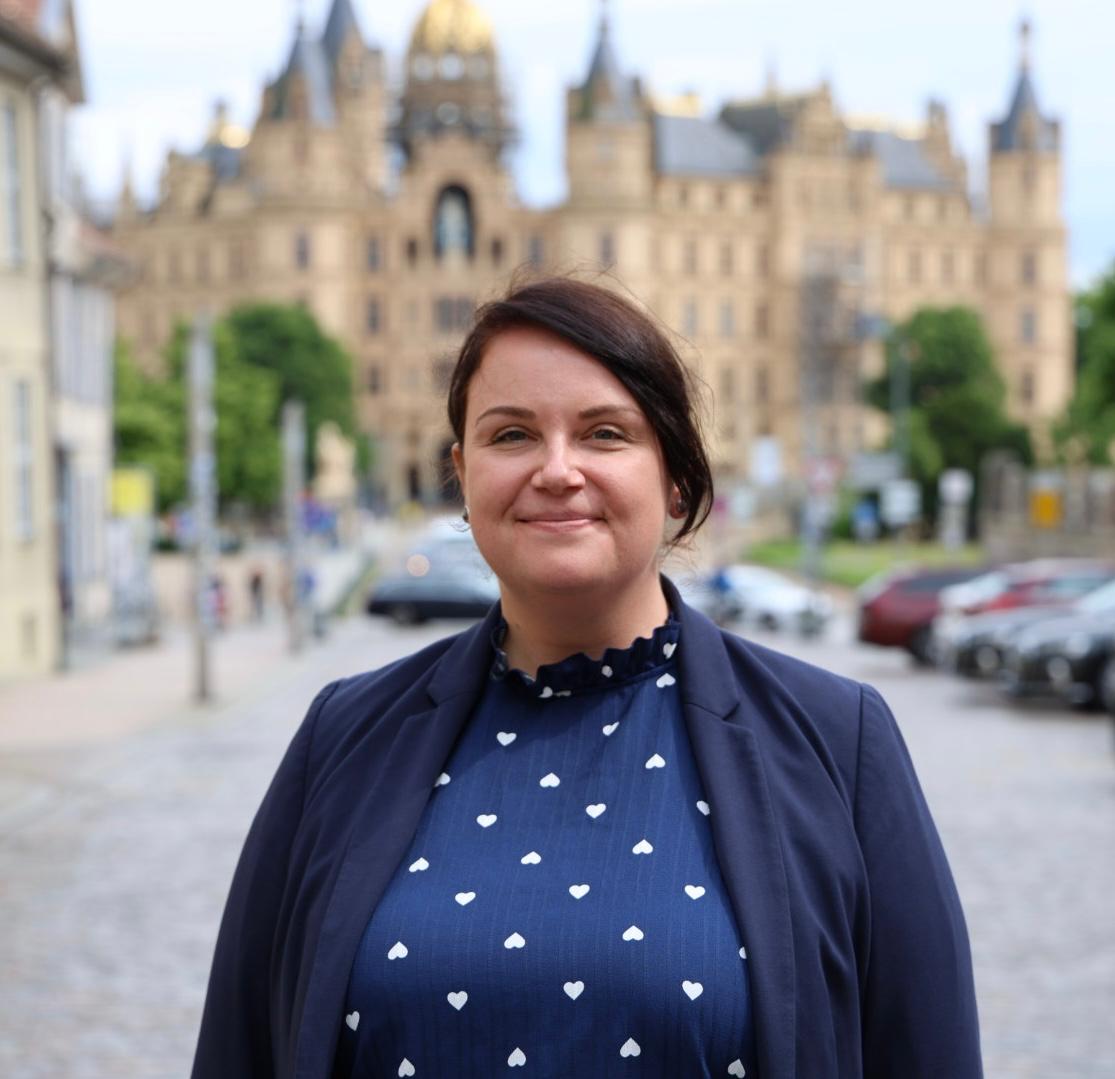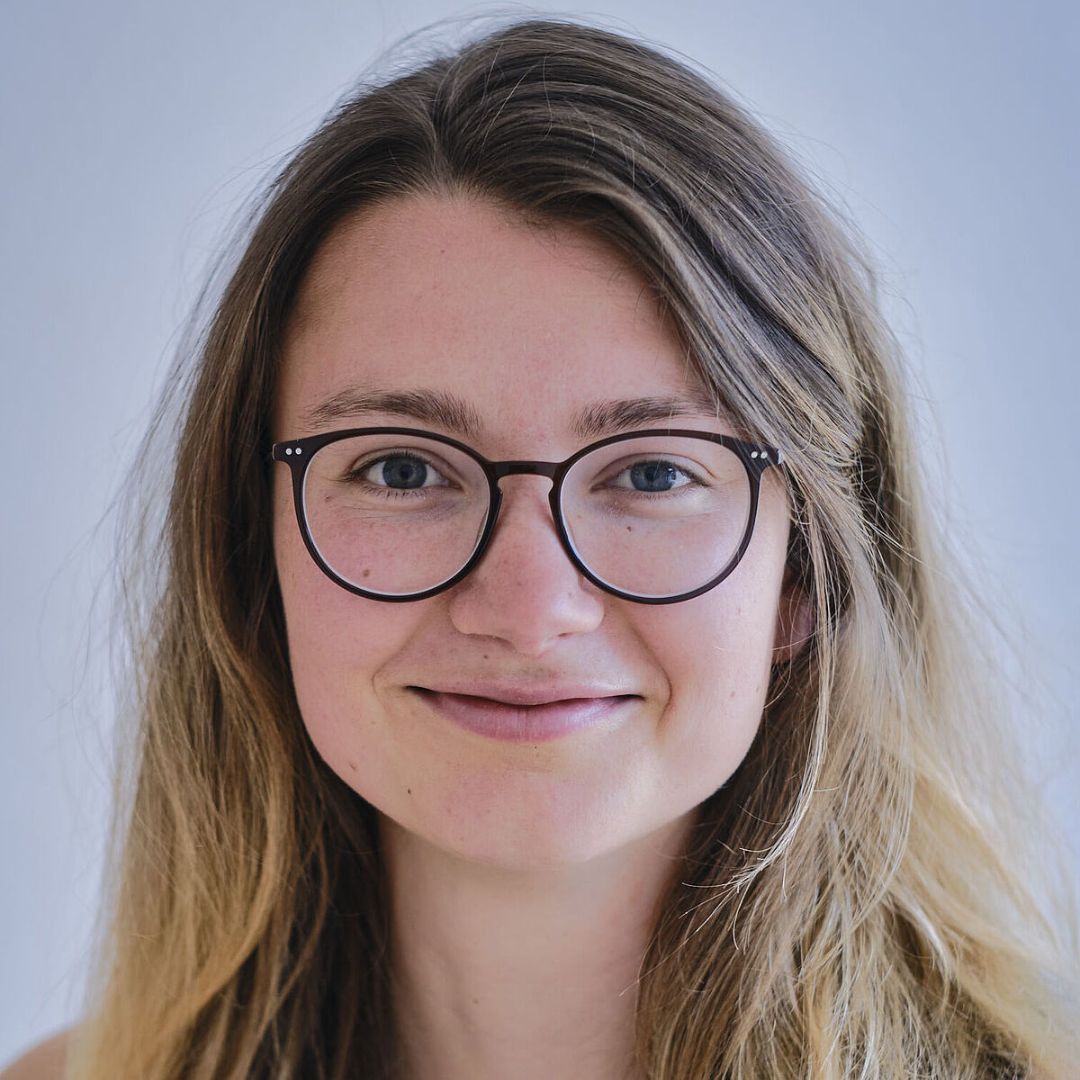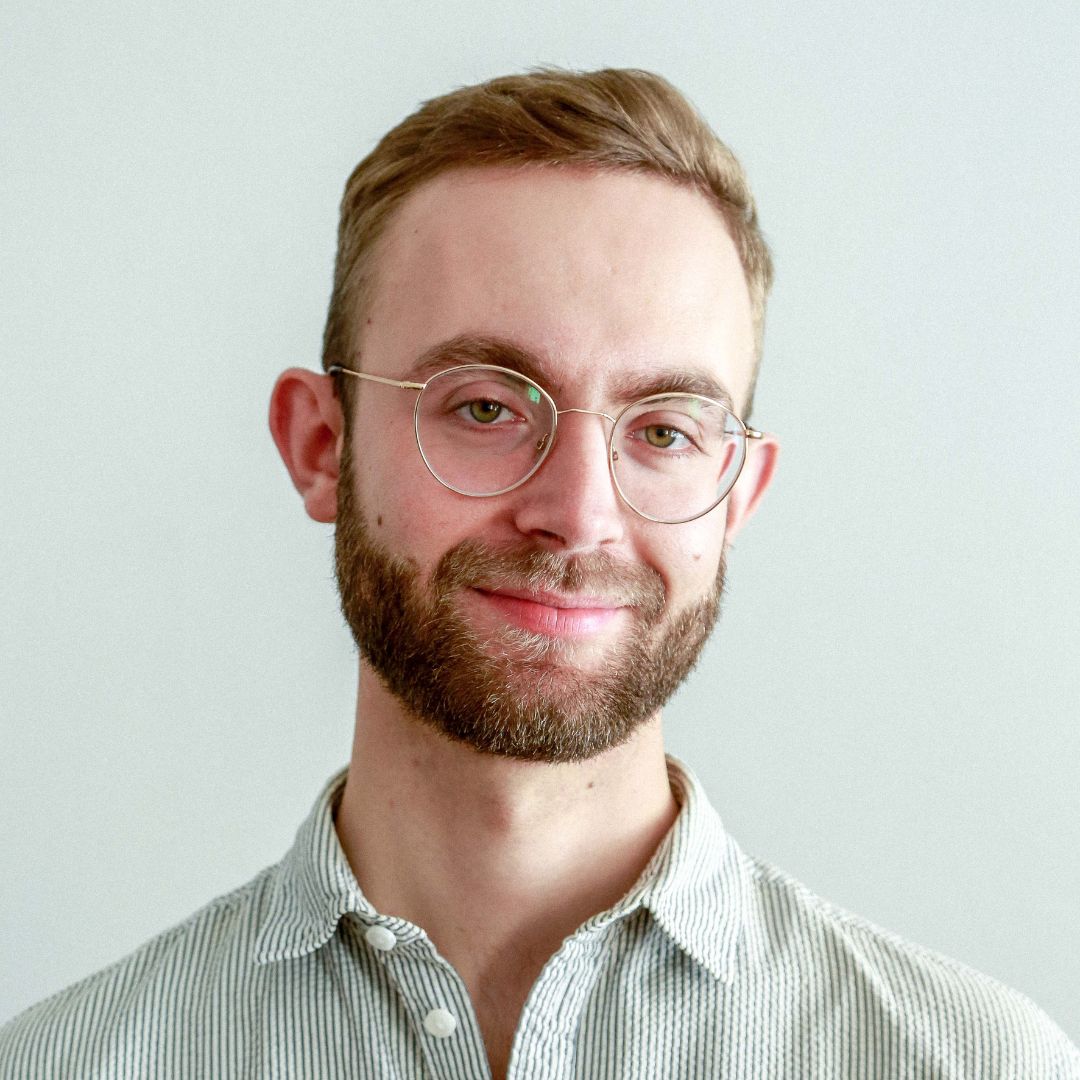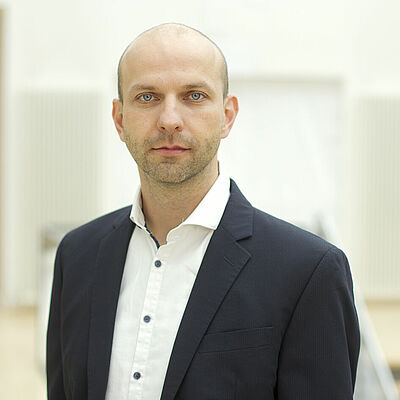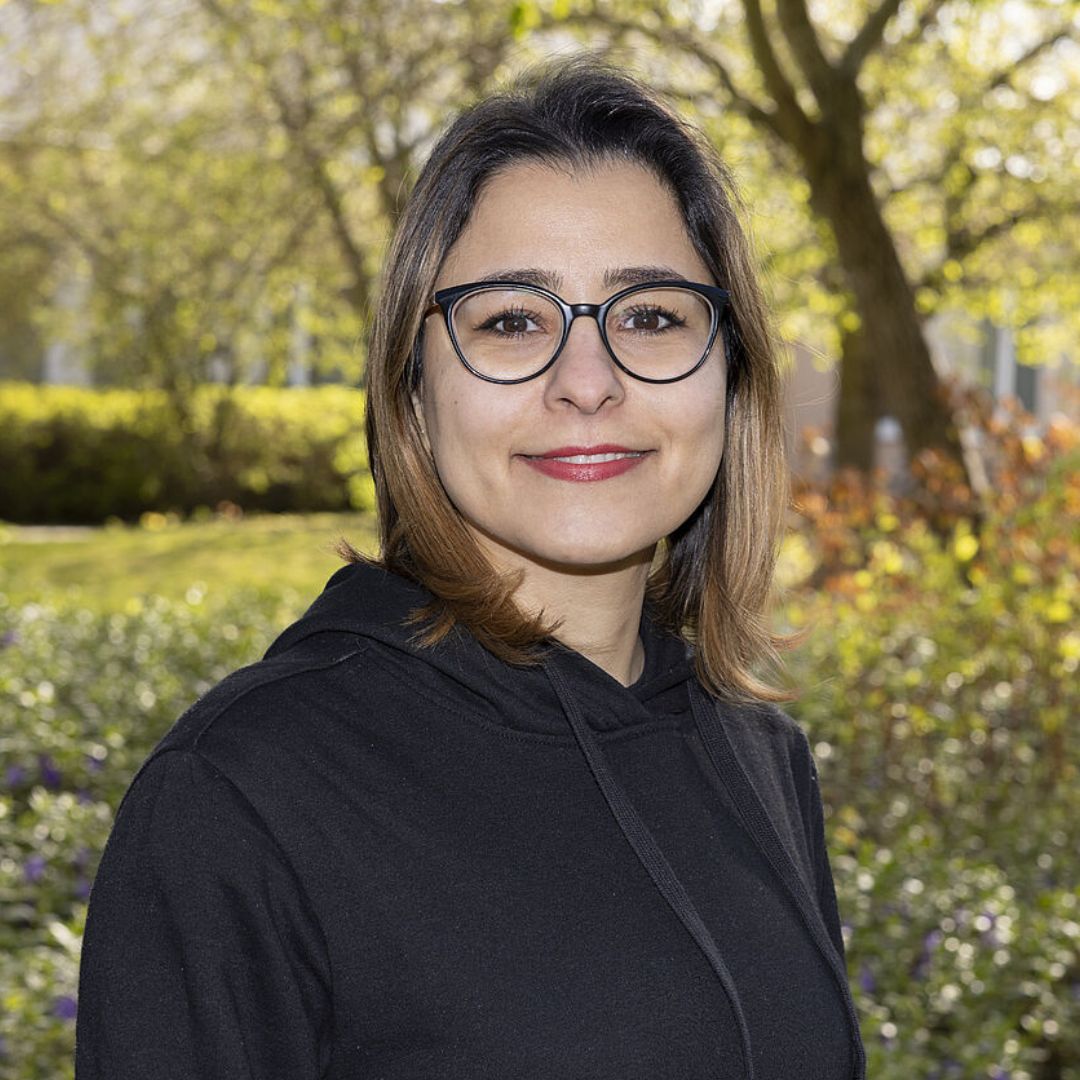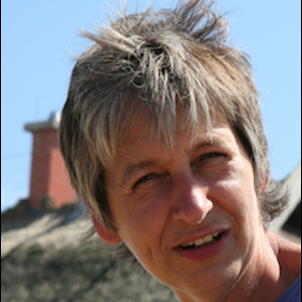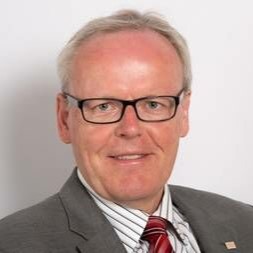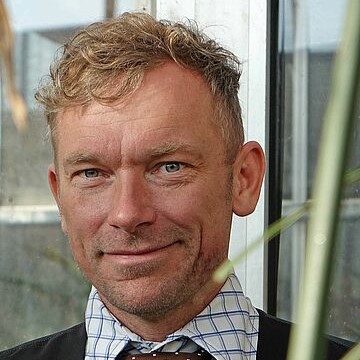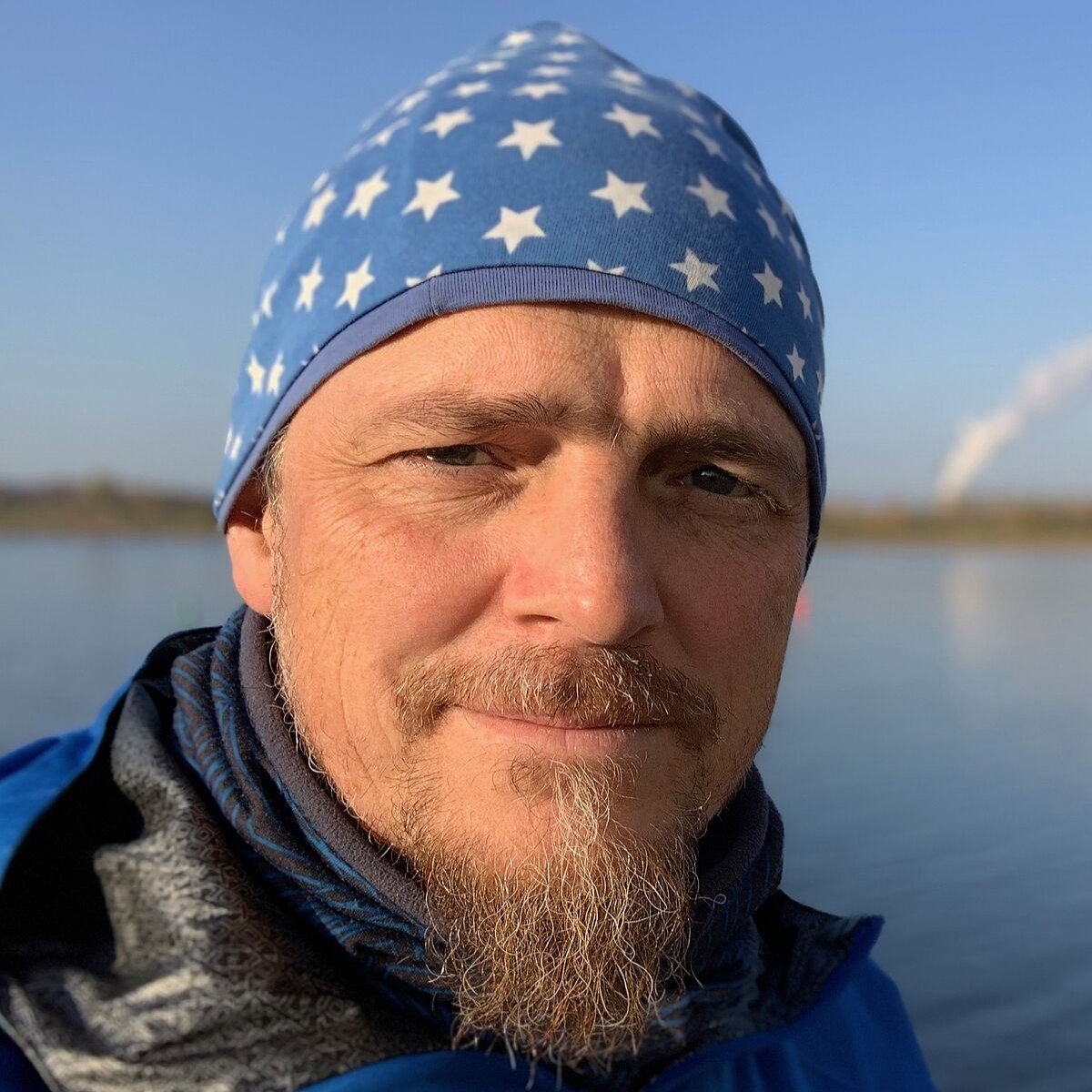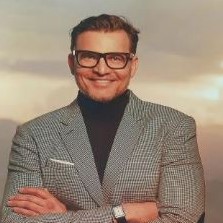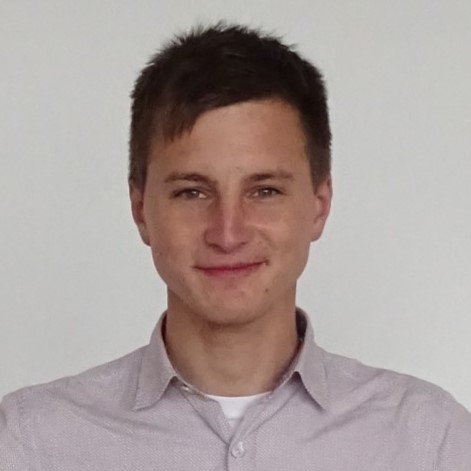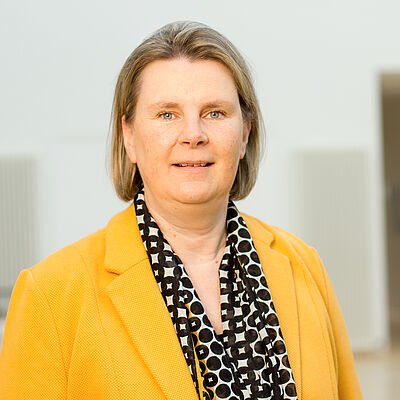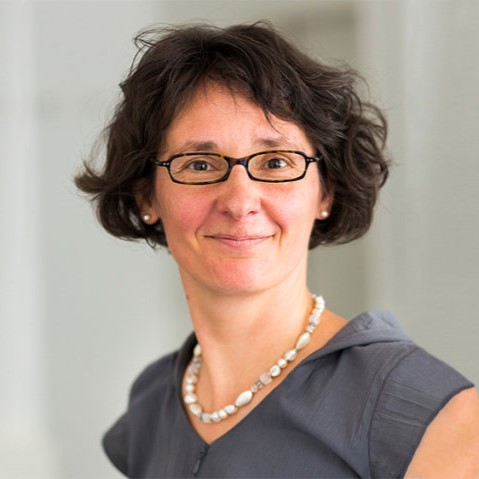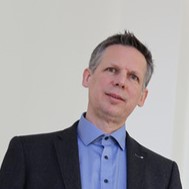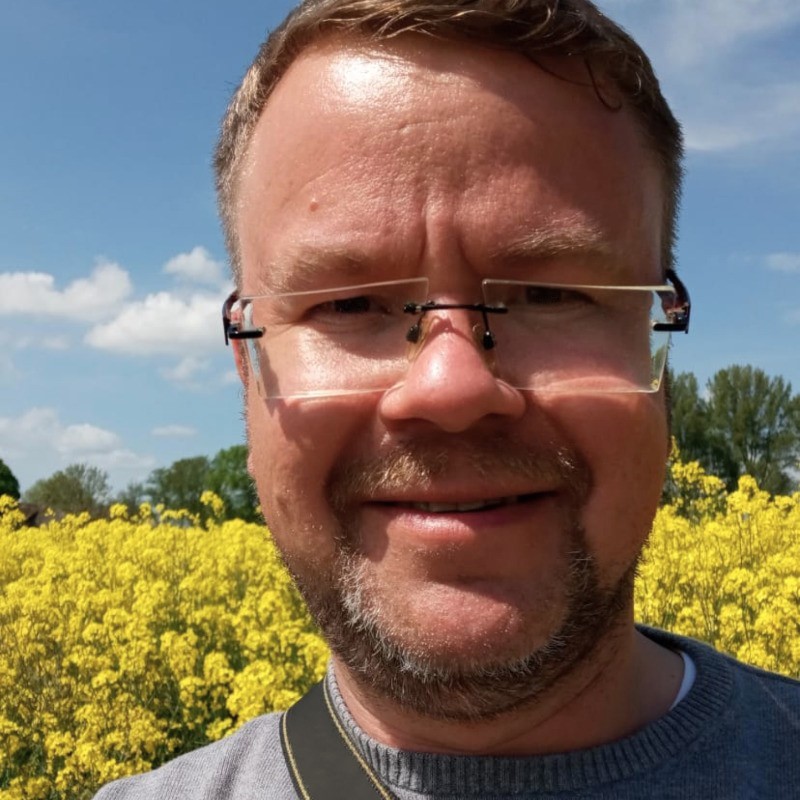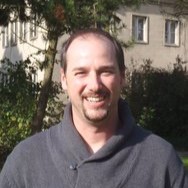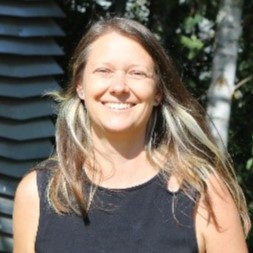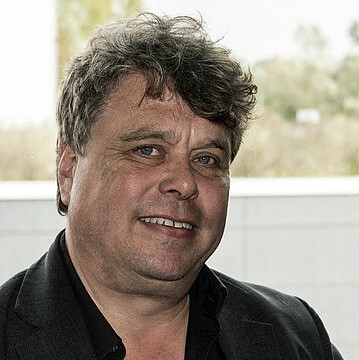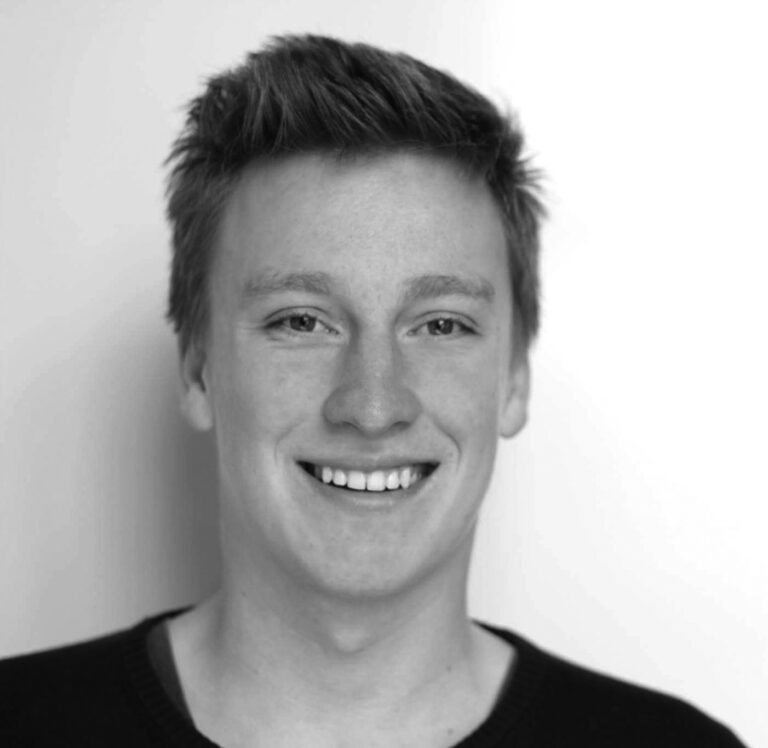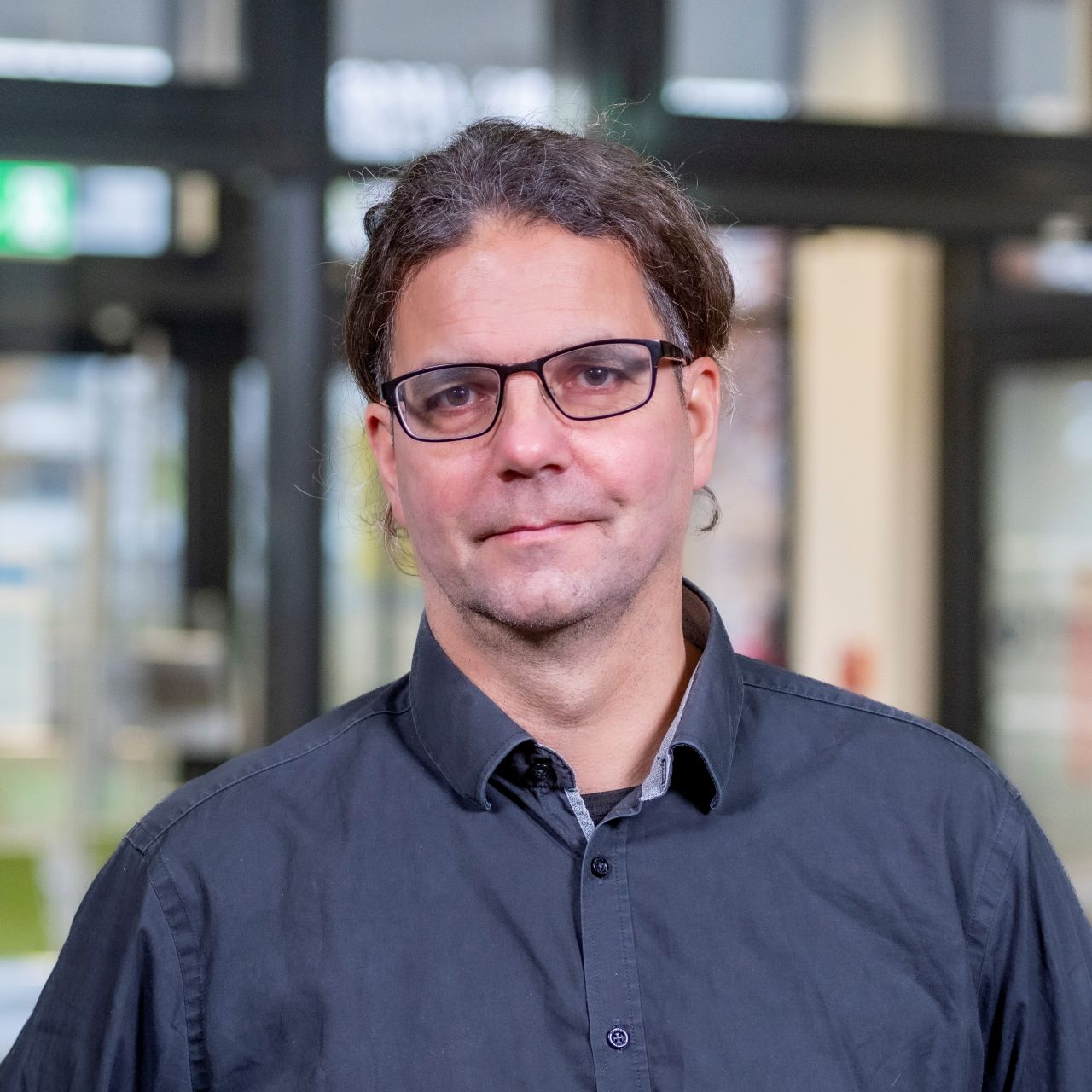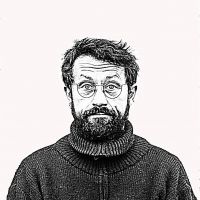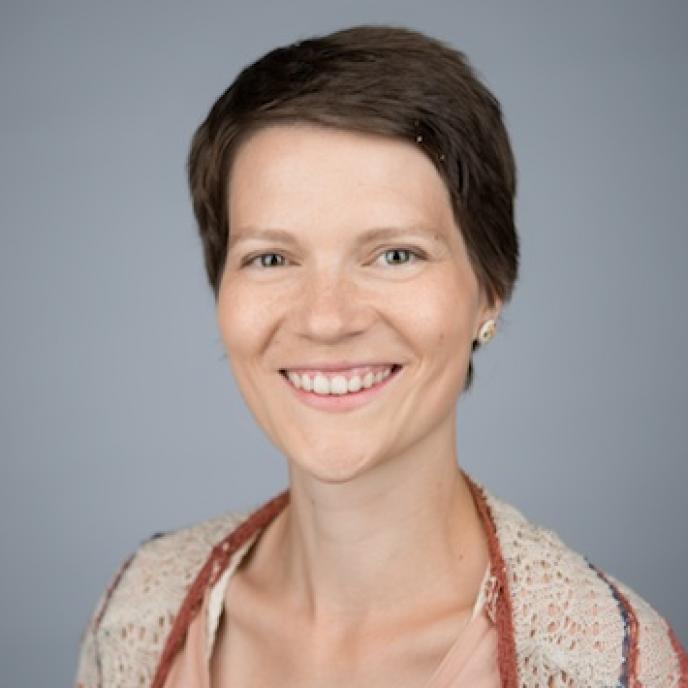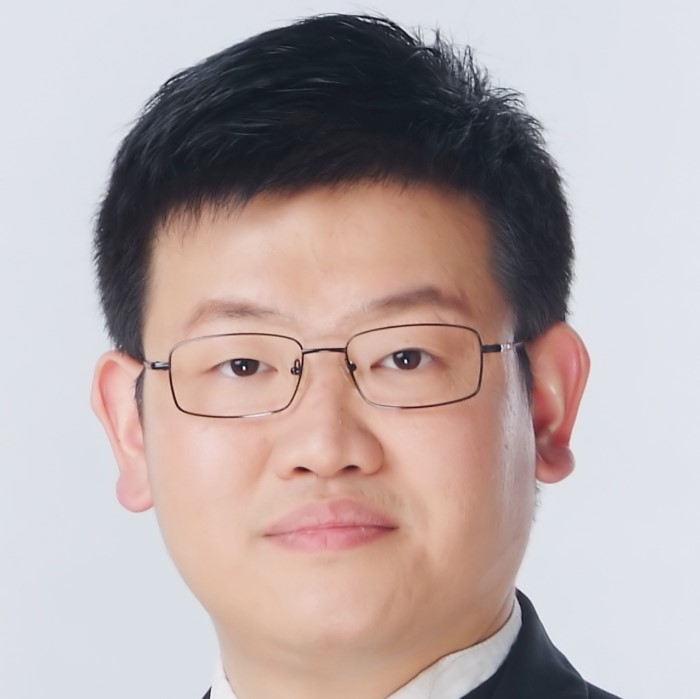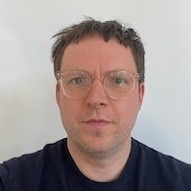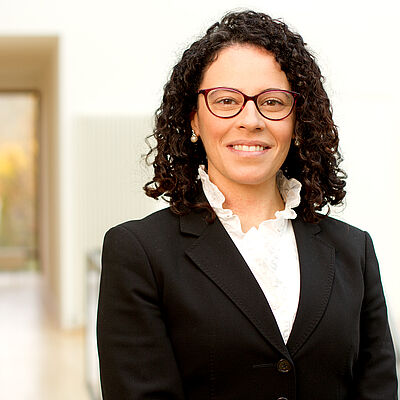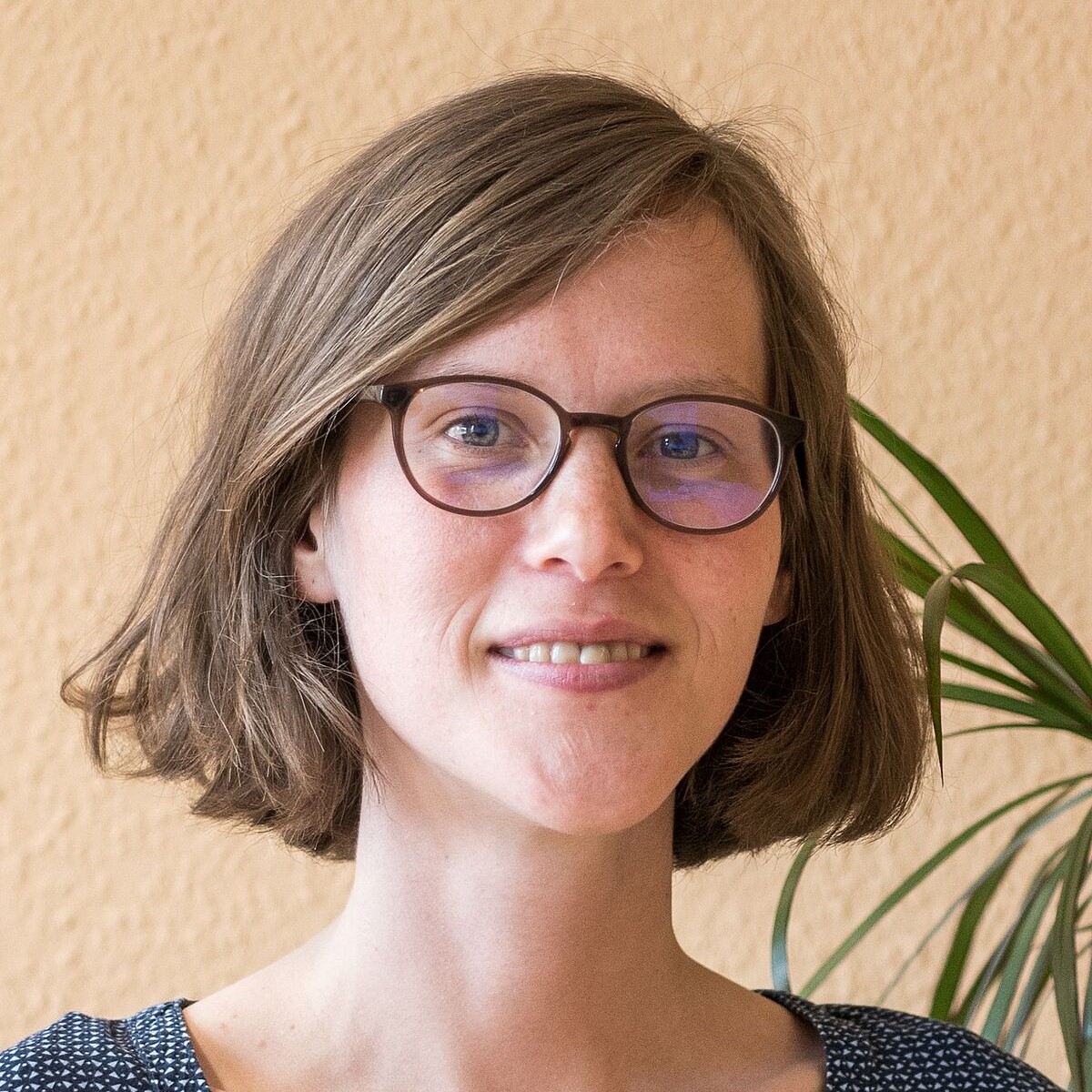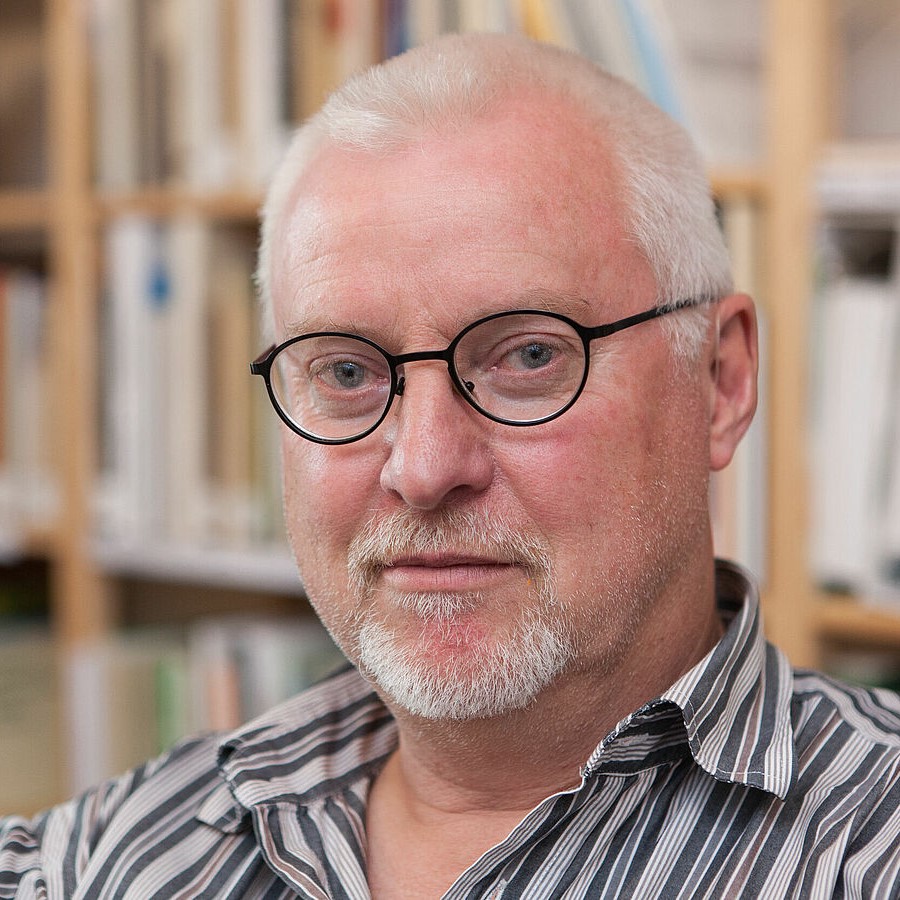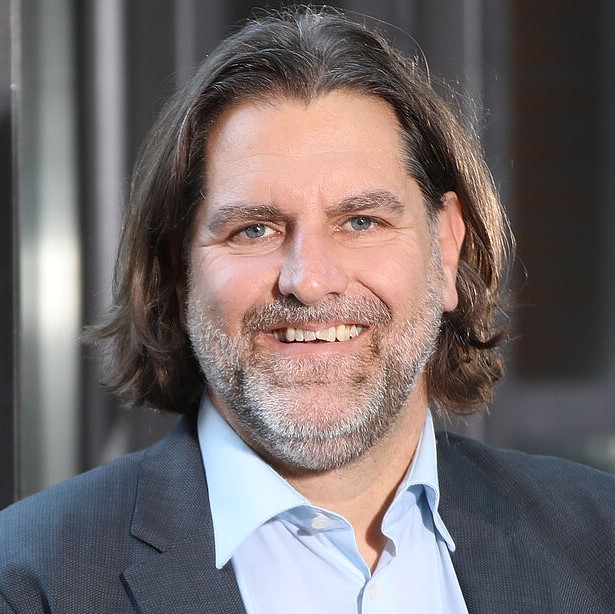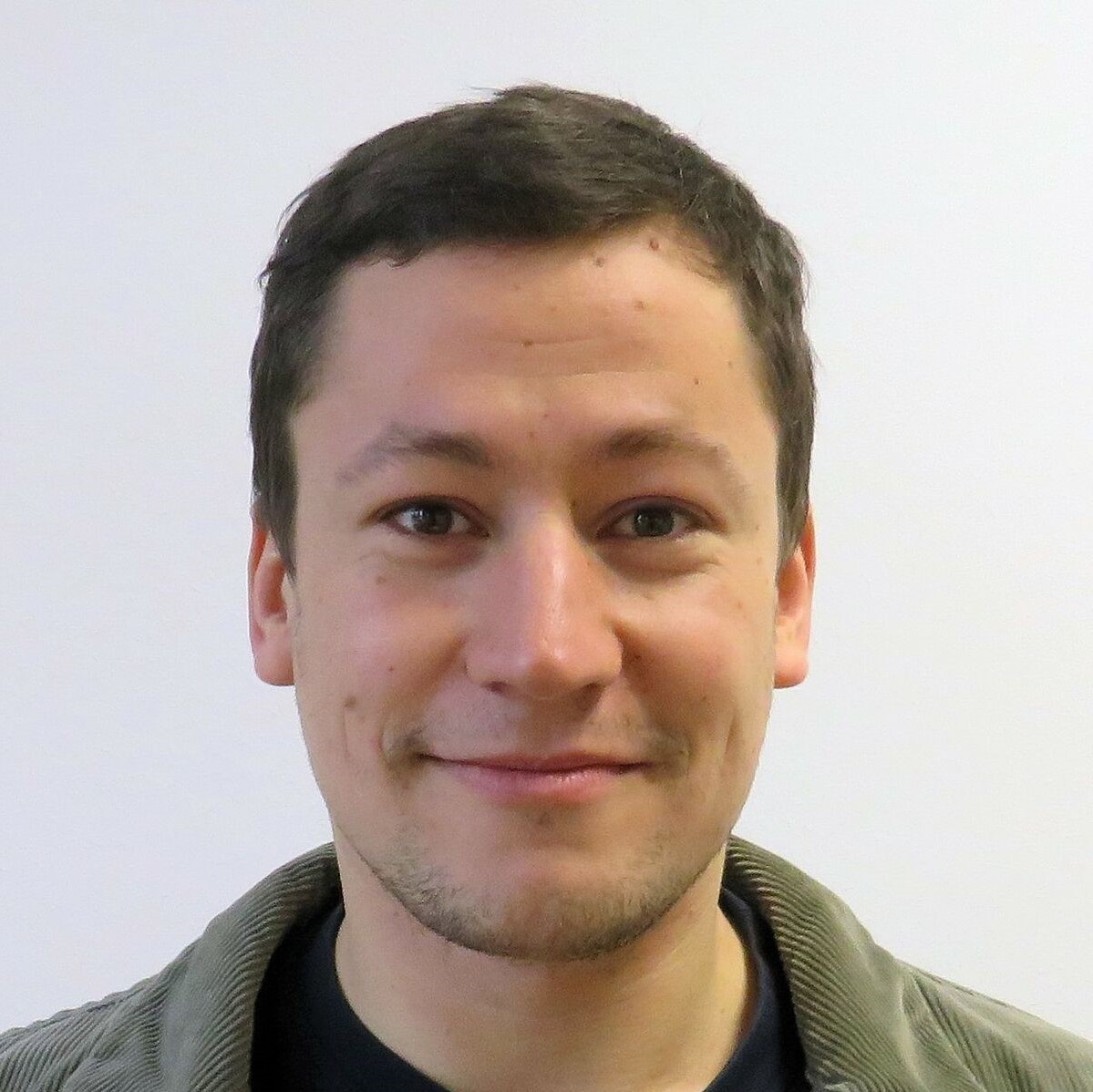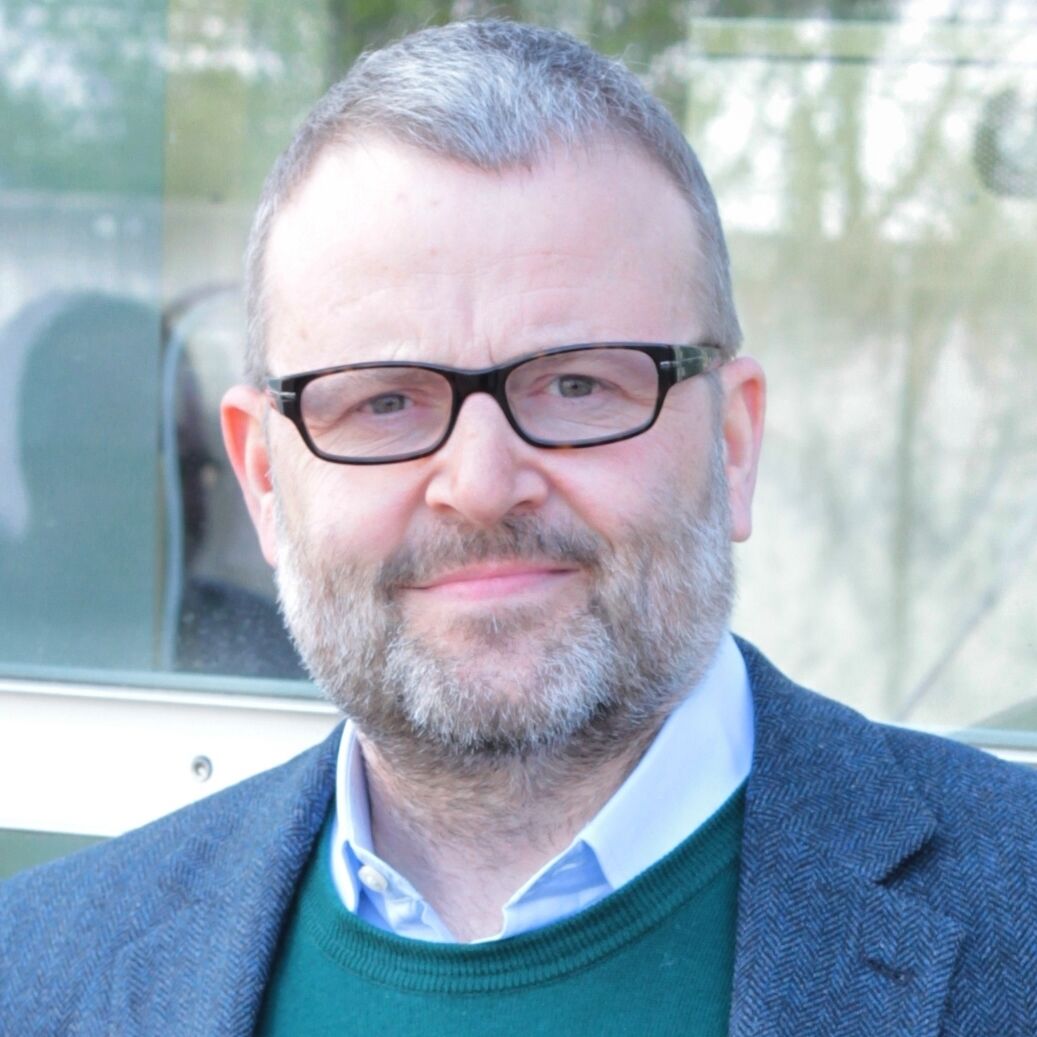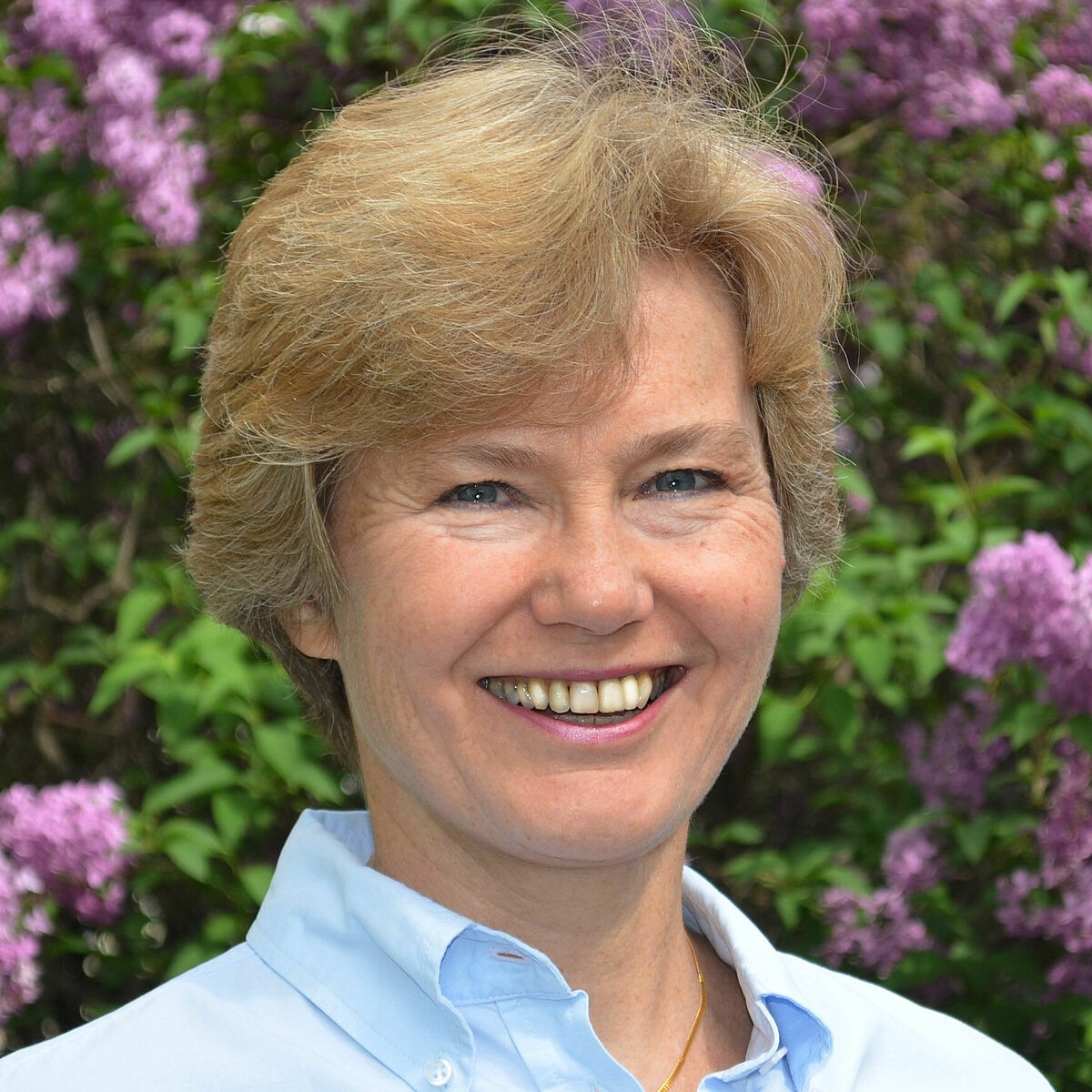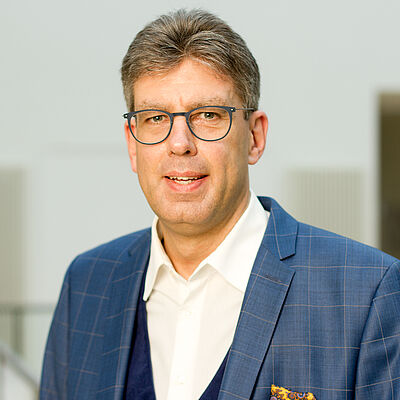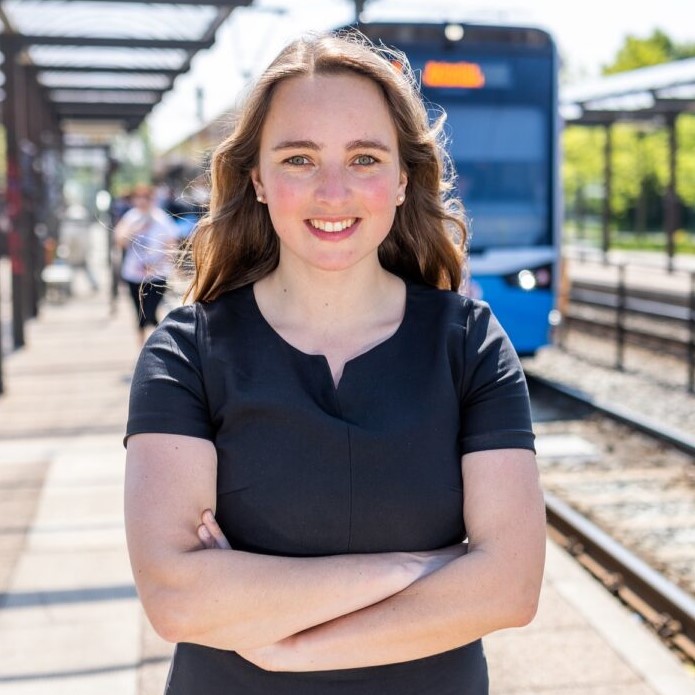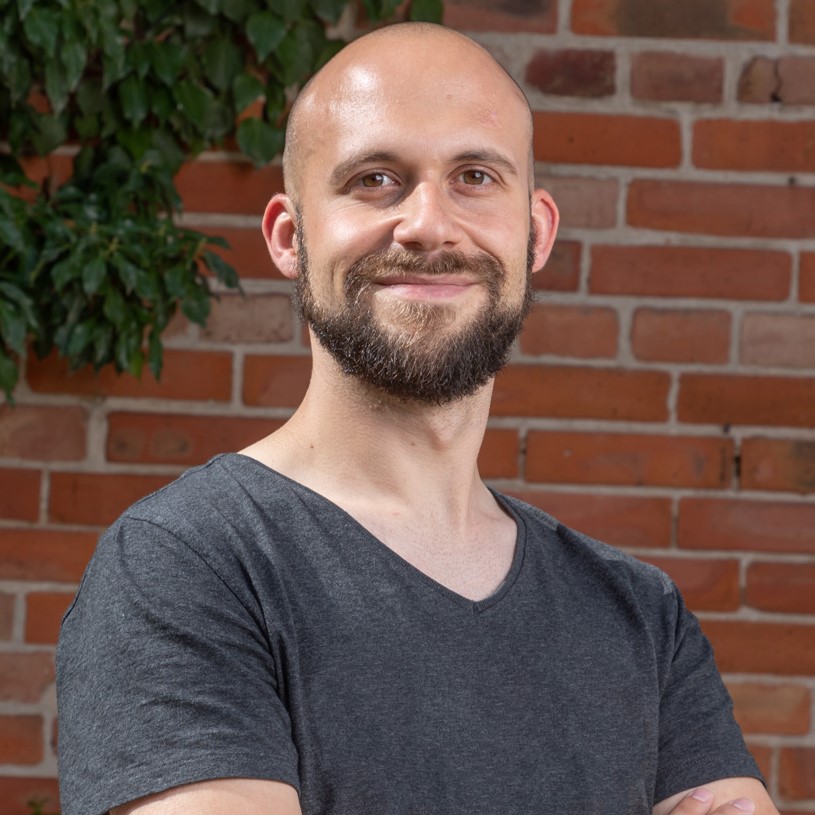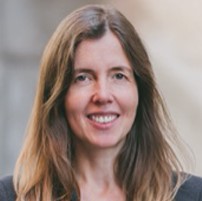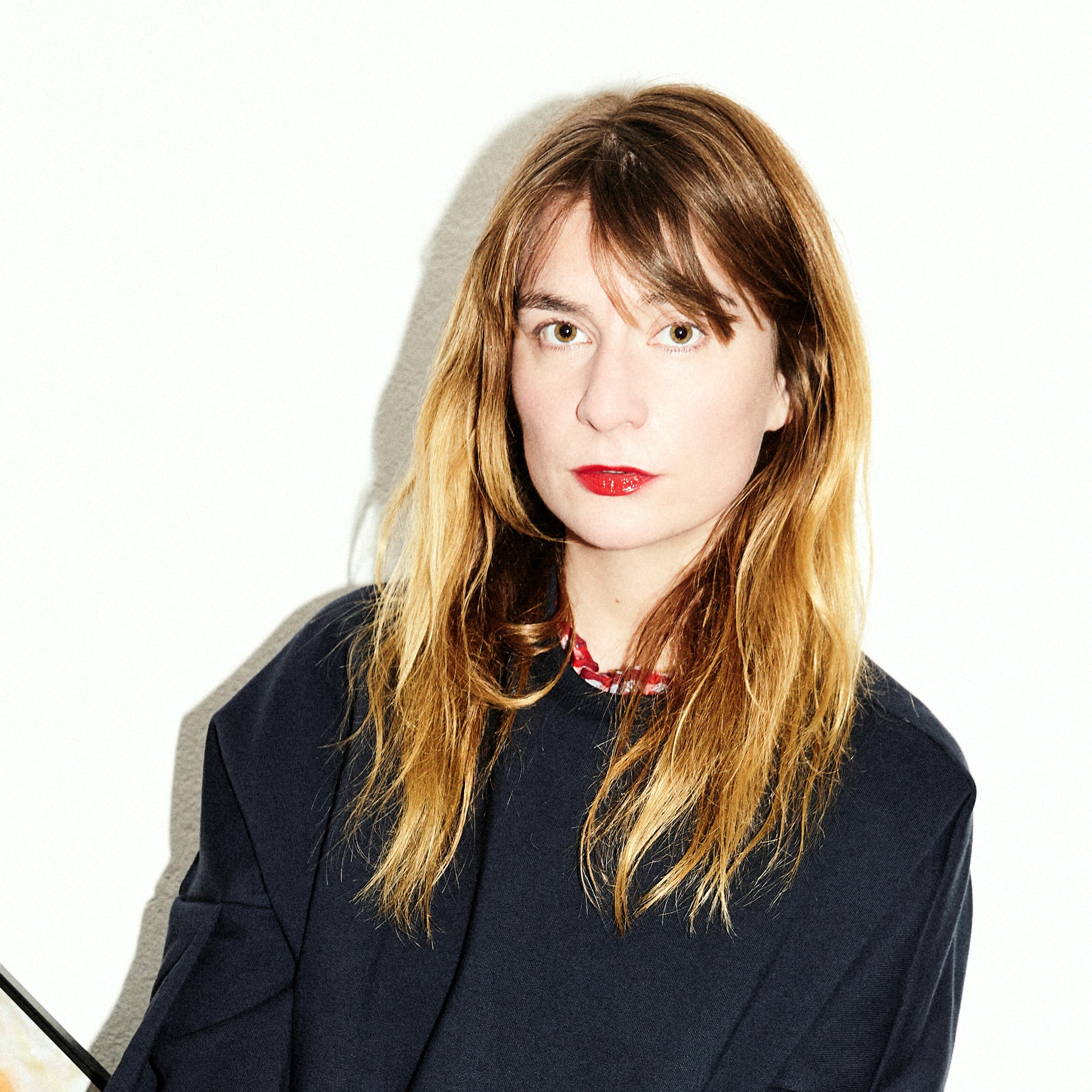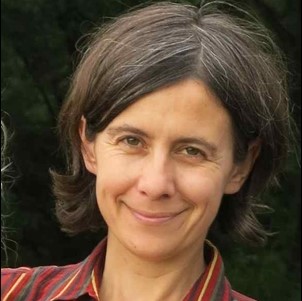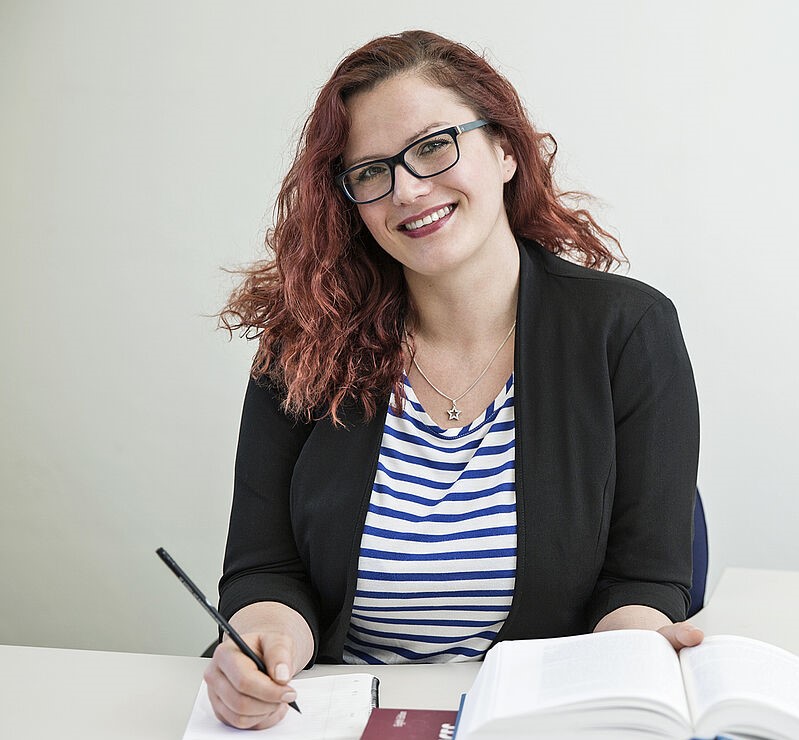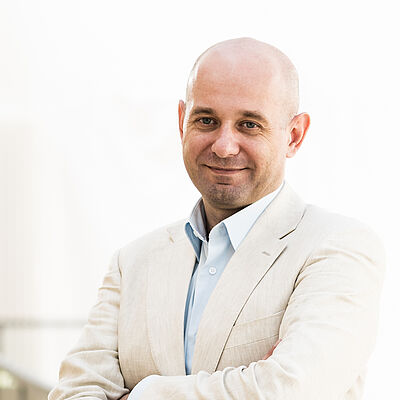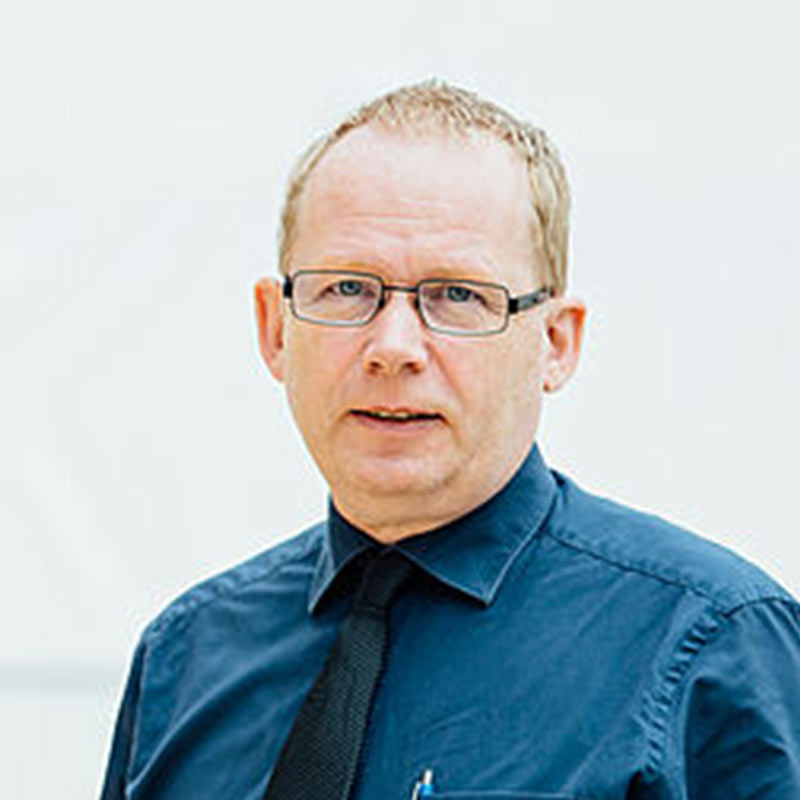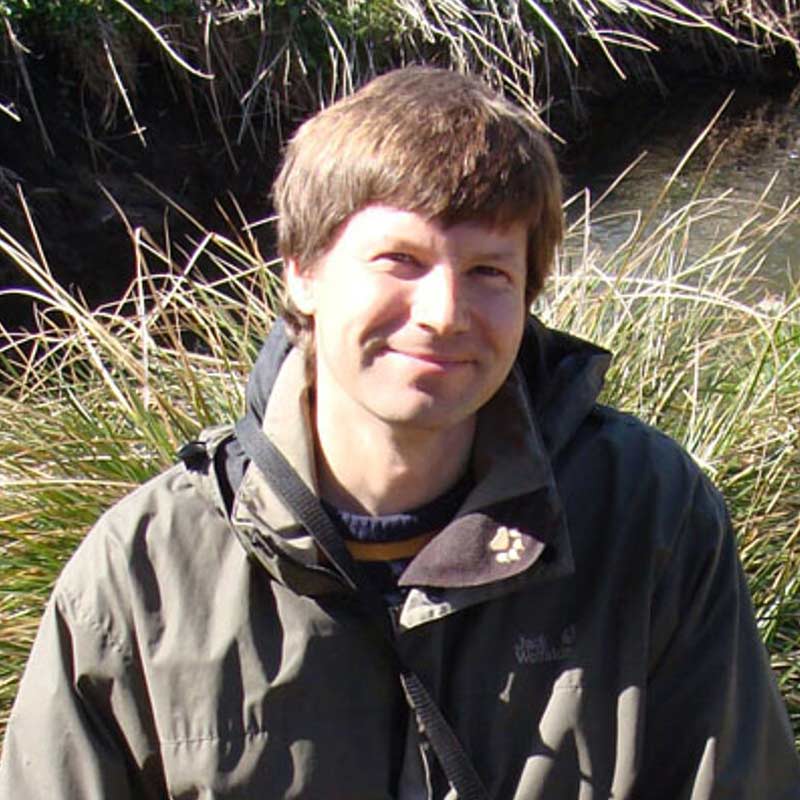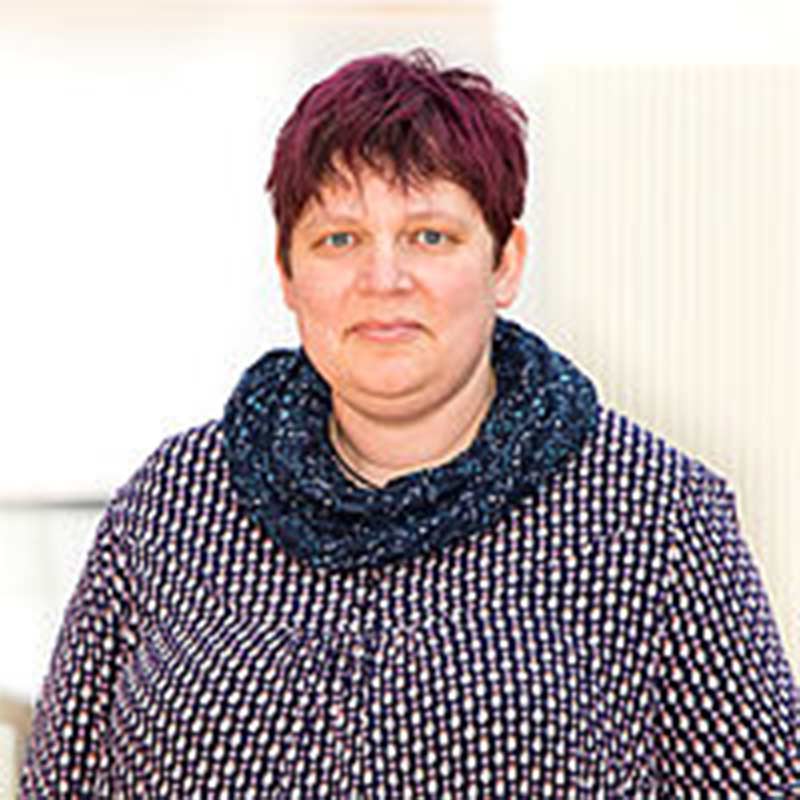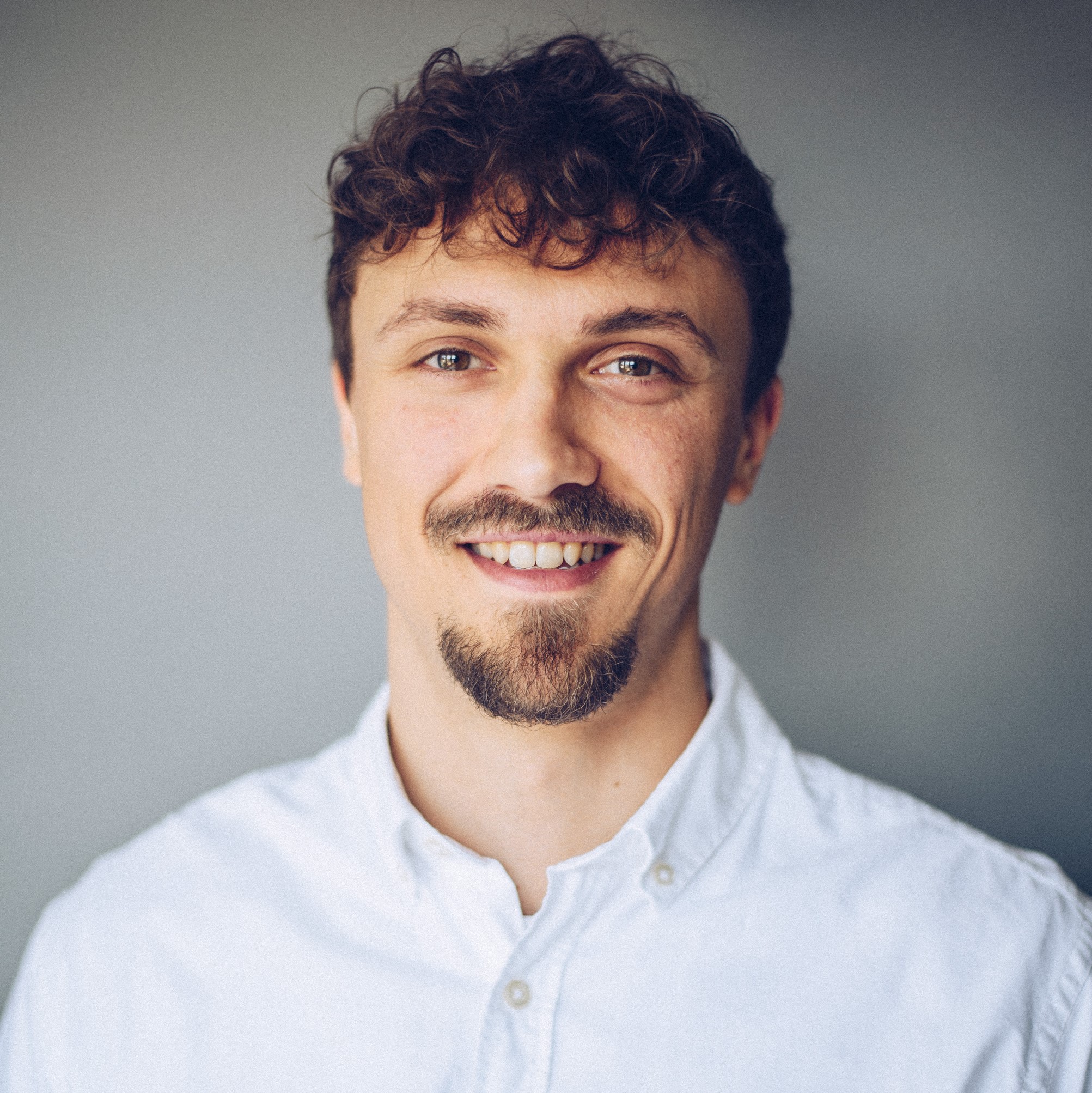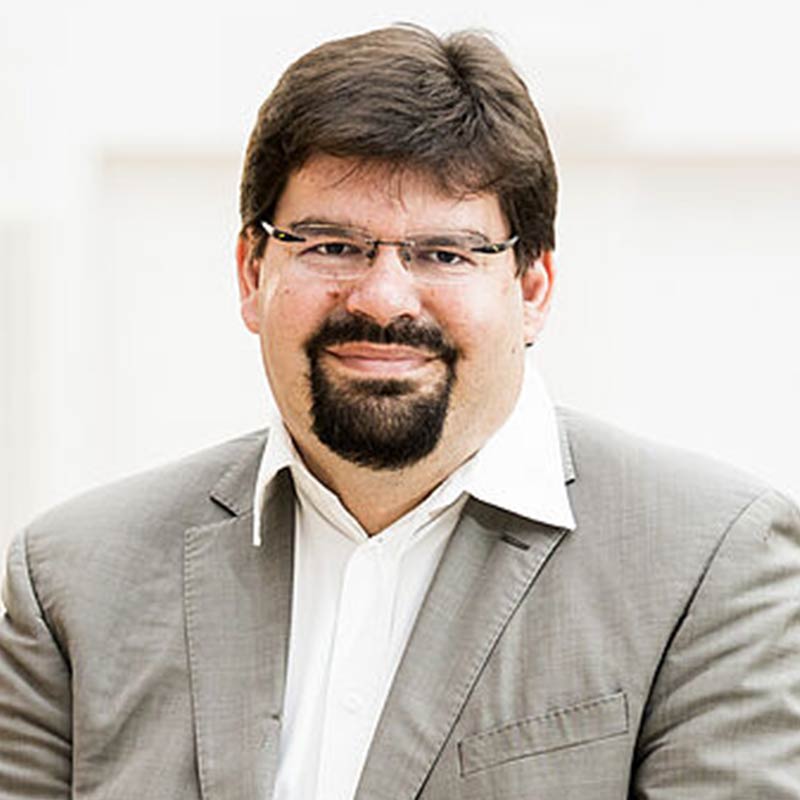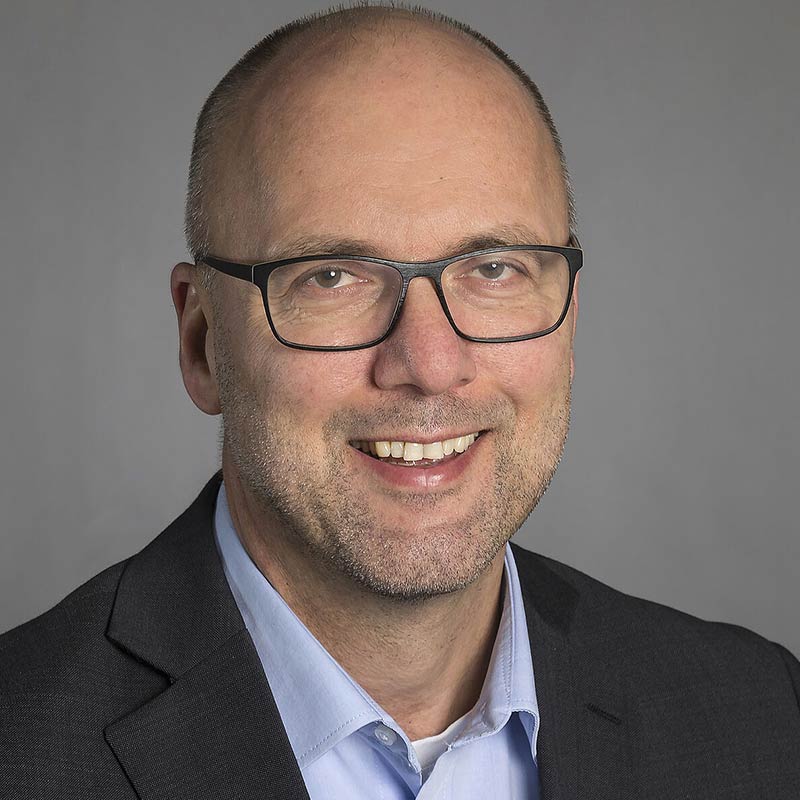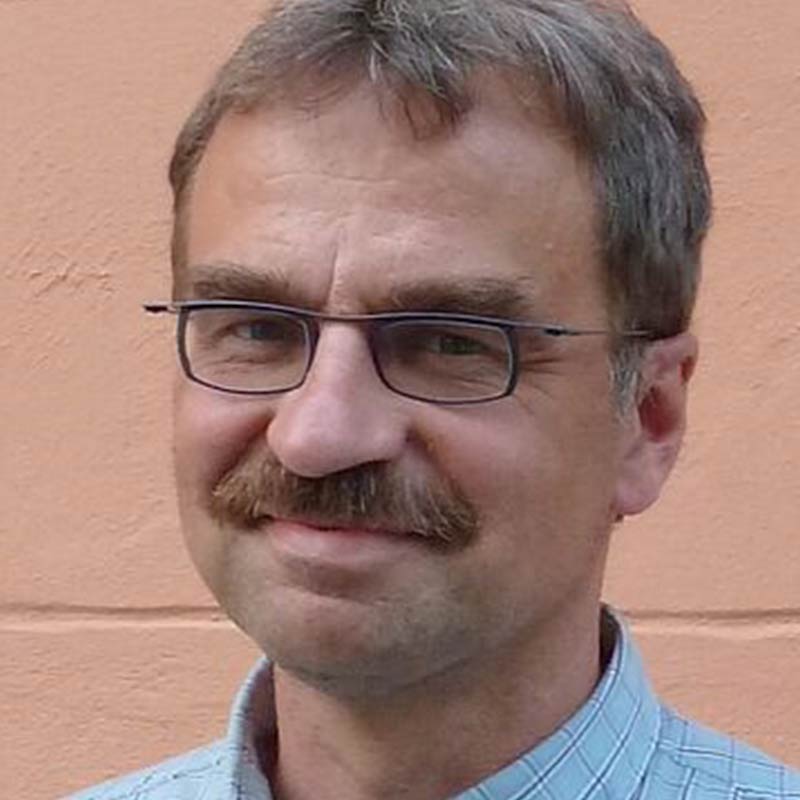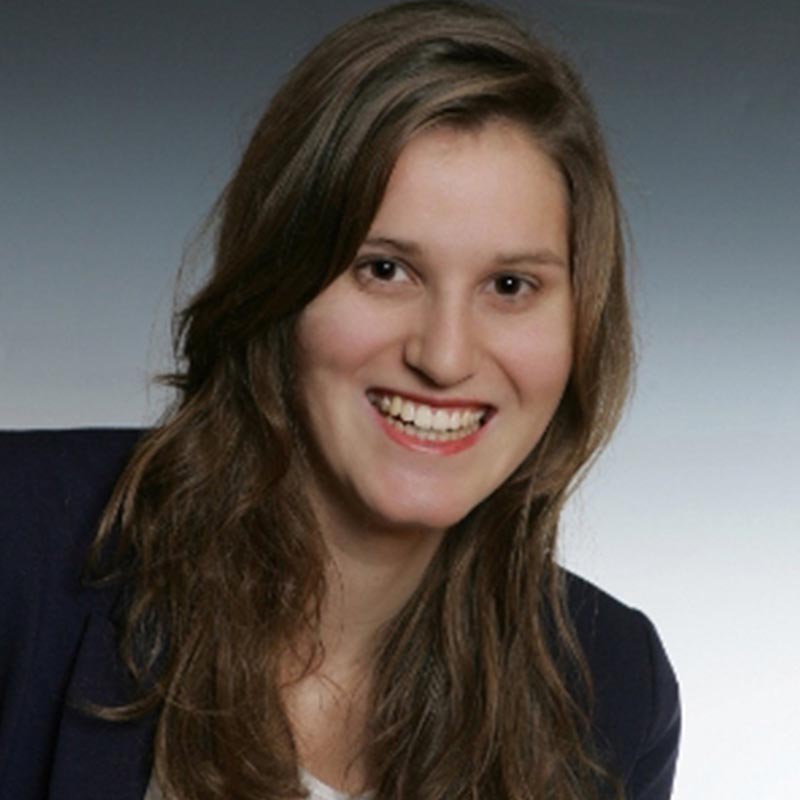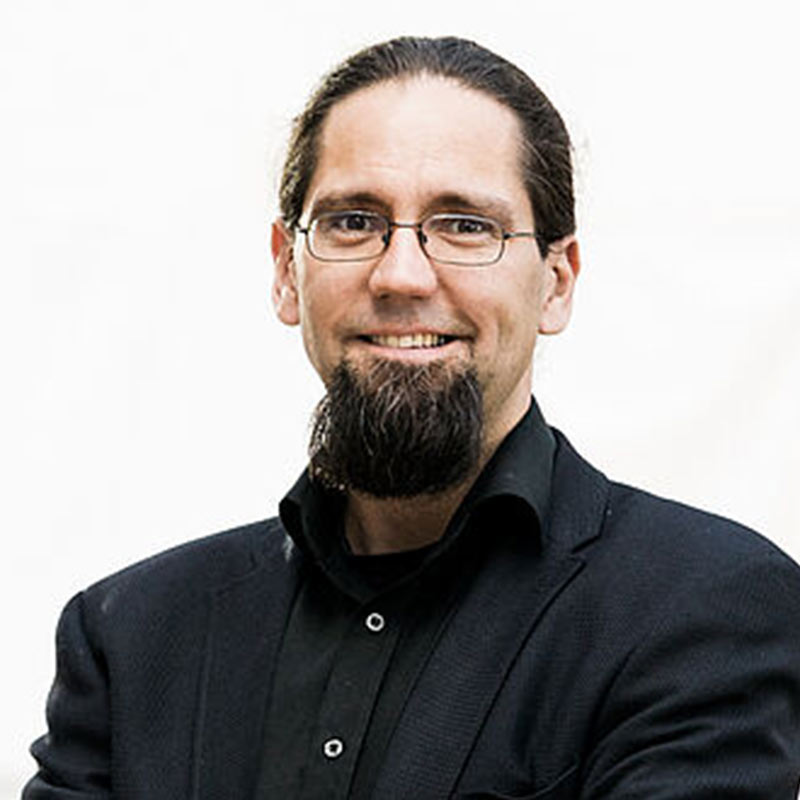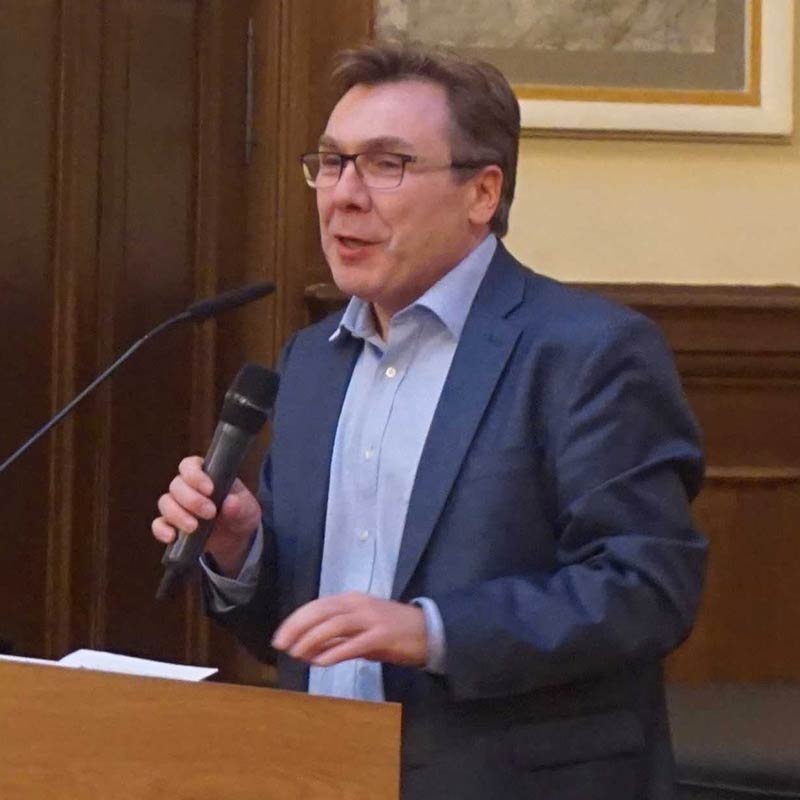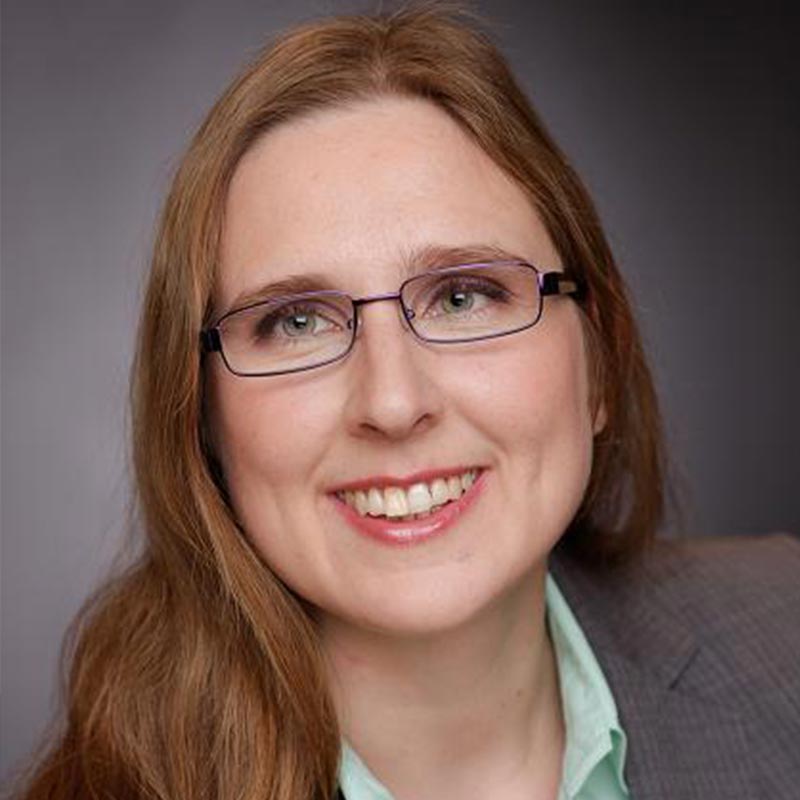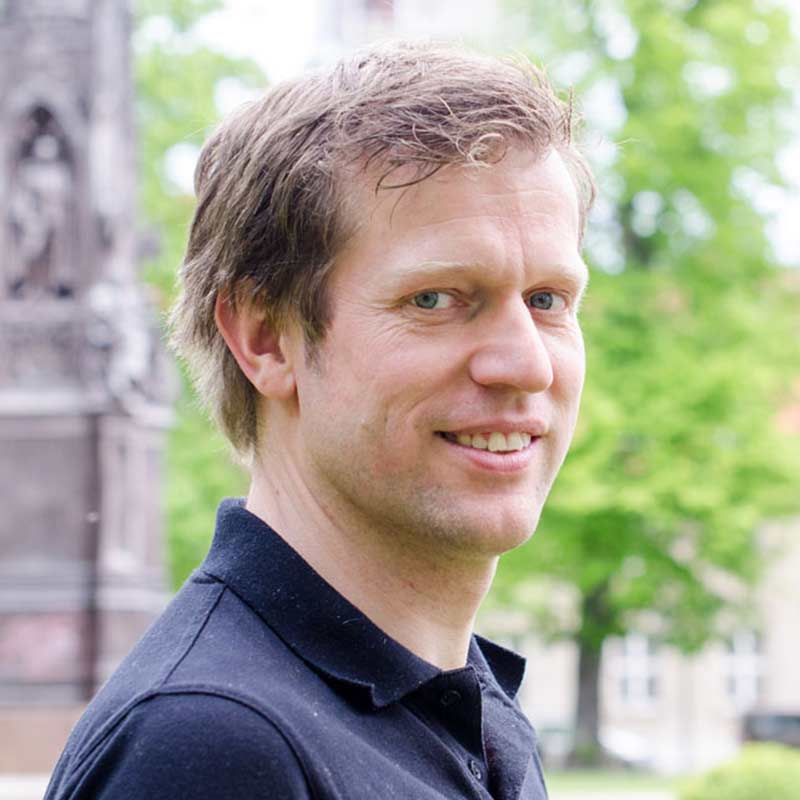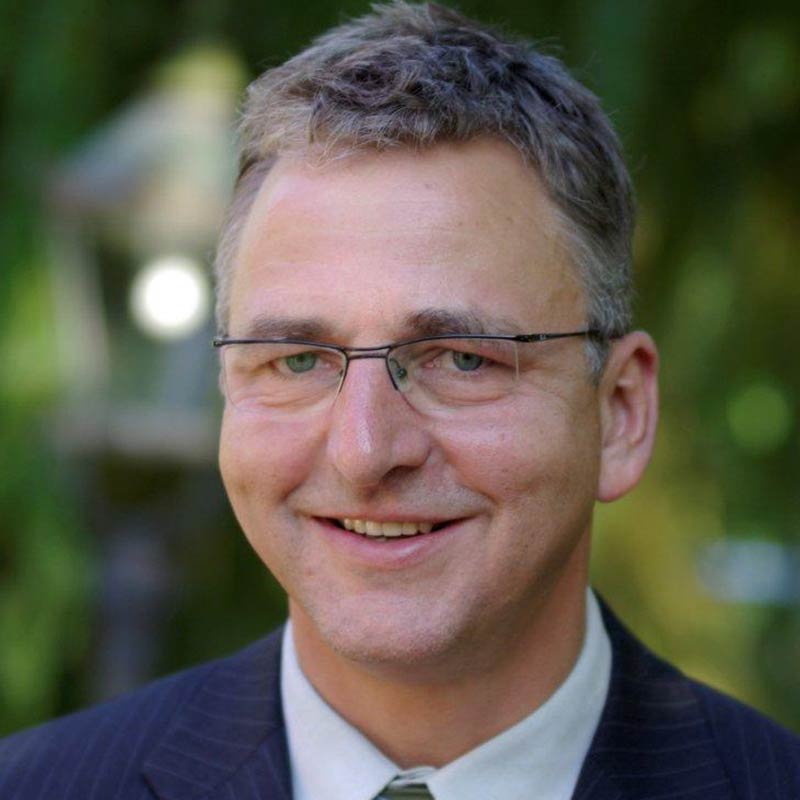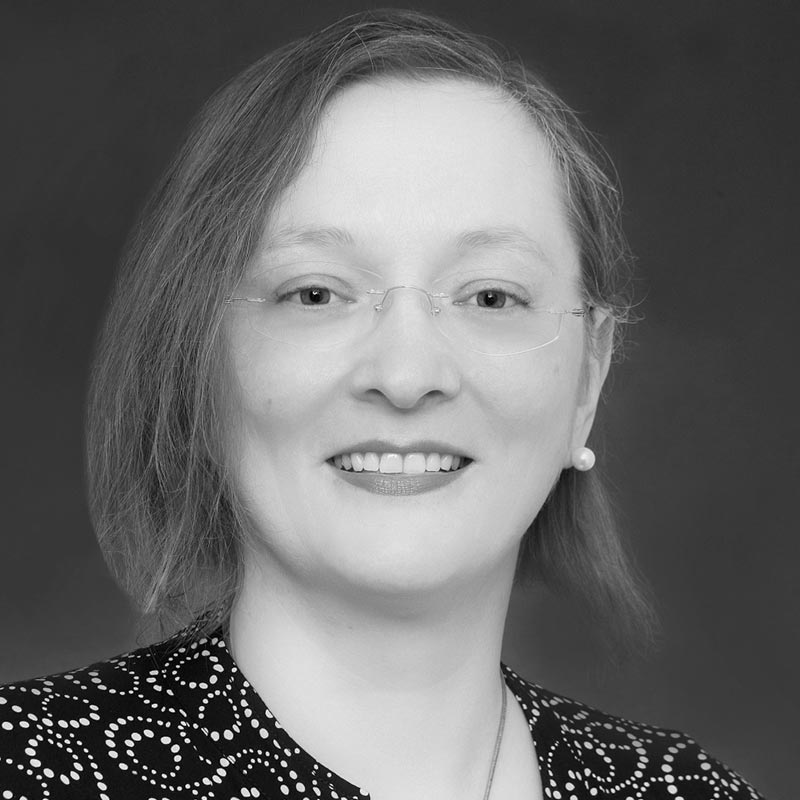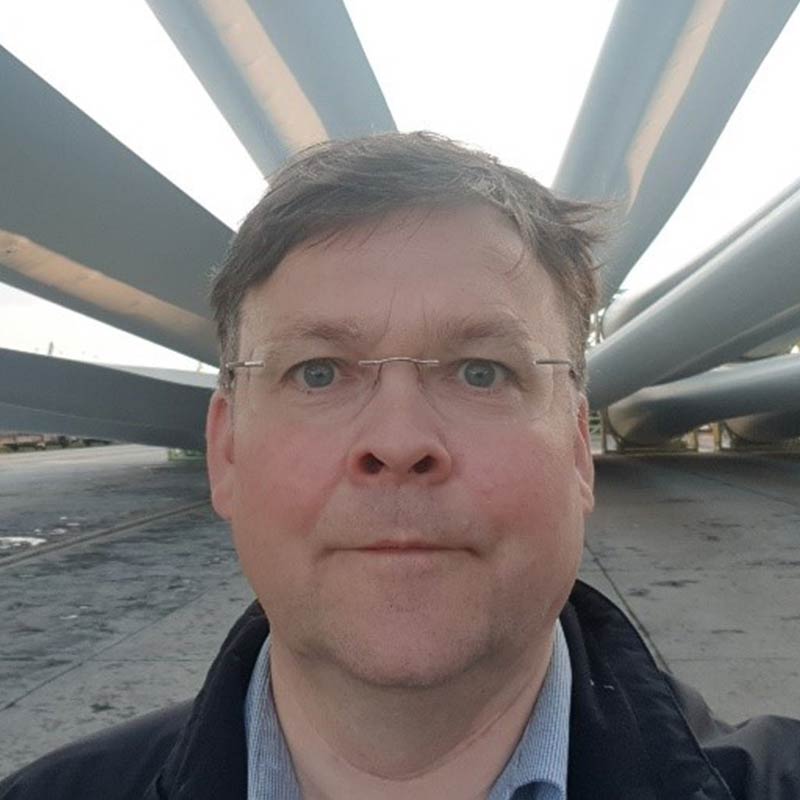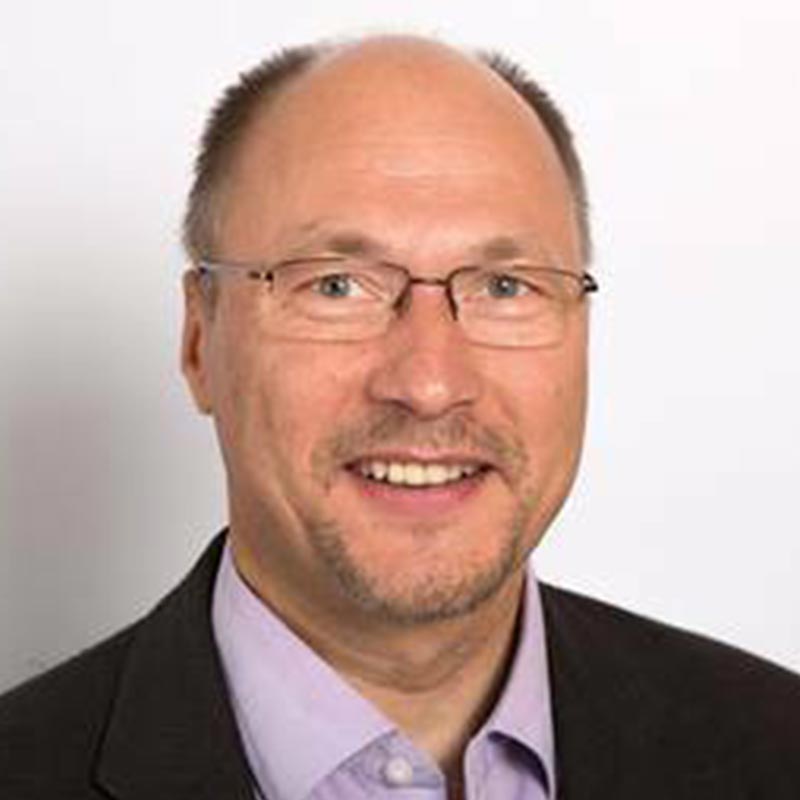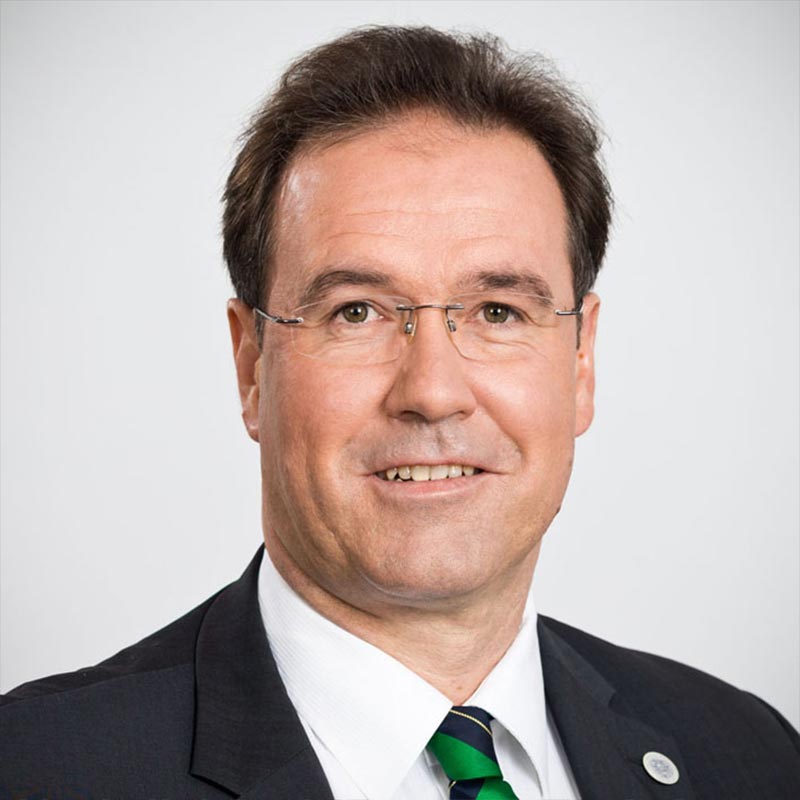About the Speakers
Experts in Their Field
SustainMV features world renowned sustainability experts from the various higher education institutions and research institutes in Mecklenburg-Western Pomerania.
Prof. Dr. Gesa Mackenthun
Gesa Mackenthun teaches American Studies at Rostock University, Germany. She published widely on early modern colonial discourse in America, Black Atlantic literature, and colonial/imperial constructions of antiquity in America.She initiated the German Research Foundation-funded graduate school “Cultural Encounters and the Discourses of Scholarship” (2006-15) and a new MA program, “Culture, Ecology, Change.” She currently works on transatlantic discourses of enclosure, evictions, and ecocide.
Markus Röhrbein
Markus Röhrbein is a research assistant in the working group „Sustainability Science and Applied Geography“ at the Institute of Geography and Geology. He studied history at the University of Greifswald and was head of the Fisheries and Harbour Museum Sassnitz from 2022 to 2024.
Research interests:
- Environmental history, historical geography, cultural landscape analysis
- Fisheries (cultural aspects, fisheries collaps, sustainability)
- Island of Rügen and the baltic sea area
Prof. Dr. Thomas Klinger
Thomas Klinger, born in Eutin in 1965, studied physics at the University of Kiel. After a research stay in France, he received his doctorate in 1994 with a thesis on gas discharge physics. After guest stays at the Alfvén Laboratory in Stockholm, at the Center de Physique Théorique in Marseille and at the Max Planck Institute for Plasma Physics in Garching, he completed his habilitation in 1998 with a thesis on “Control of plasma instabilities”. Shortly afterwards he was appointed Professor of Experimental Physics at the University of Greifswald, where he headed the Institute of Physics as Managing Director from 2000 to 2001. Since April 2001 he has been a scientific member of the Max Planck Society and director at the Greifswald Institute for Plasma Physics, where he heads the “Stellarator Dynamics and Transport” department. In April 2002 he was appointed to a chair in experimental plasma physics at the University of Greifswald and has been head of the “Wendelstein 7-X” company since 2005. Thomas Klinger was active in numerous German and international scientific committees, including as a member of the DFG expert committee and as a member of the plasma physics board of the European Physical Society.
Kassandra Hellicar
Kassandra Hellicar is a research assistant in the FutureBalticBauhaus project, striving for more circularity in the building sector. One of her focuses is on how the planning phase but also the design of the finished project change when reusing building components. During her architecture studies in Wismar, Kassandra was already deeply involved with sustainable and social architecture and, as a student assistant and tutor, introduced the younger students to related topics. Kassandra’s work combines creative concepts with a sense for community with well thought-out sustainability and the targeted inclusion of reused building parts in future architectural projects.
Prof. Dr. Caroline Bönisch
Since 2024, Prof. Dr. Caroline Bönisch has been an appointed Professor of Medical Informatics at the University of Applied Sciences Stralsund. Her work focuses strongly on the interoperability of data within the health sector and the sustainable use of medical informatics applications and tools. She is also co-lead of the GMDS working group “Faire Dateninfrastrukturen” and a member of the Gesundheitskommission Mecklenburg-Vorpommern.
Miriam Finkhäuser
Miriam Finkhäuser is a researcher at the Department Health and Prevention at the University of Greifswald with interest in environmental psychology. Her previous work focused on dietary behaviour, particularly ambivalence and meat consumption. She is currently interested in the relationship between environmental characteristics and psychological outcomes.
Tobias Ihle
Tobias Ihle is a research assistant and PhD candidate in the working group Nature, Health, and Quality of Life at the Department Health and Prevention, University of Greifswald. He studied psychology at Freie Universität Berlin and Jagiellonian University in Krakow. His research interests lie at the intersection of health, social, and environmental psychology, with his PhD exploring the psychological effects of social participation in urban greenspace initiatives.
Prof. Dr.-Ing. Normen Fuchs
Prof. Dr.-Ing. Normen Fuchs studied industrial engineering at the University of Rostock (specializing in manufacturing technology, production engineering). Following his studies, he worked at the Fraunhofer Research Institution for Large Structures in Production Engineering (IGP) from 2006 to 2019. While working, Prof. Fuchs completed training as an international welding engineer at the Welding Training and Research Institute in Rostock.
At the Fraunhofer IGP, he was head of the Forming Joining and Shaping working group. The focus of his research and development activities was the forming joining of lightweight materials, including in combination with adhesive bonding. From 2008 to 2018, he also headed the Fraunhofer IGP’s DIN EN ISO 17025:2005 accredited testing laboratory. Since 2018, Prof. Fuchs has been appointed as an expert assessor of the German Accreditation Body GmbH for the fields of mechanical-technological testing, metallography (including OES and SEM) and corrosion testing. As part of this activity, he assesses the quality management systems of accredited testing laboratories.
At Stralsund University of Applied Sciences, Prof. Fuchs has been appointed since 01.08.2019 for the areas of production technology (focus on joining technology) and quality management. His research work at the university currently focuses on the joining of lightweight materials.
(taken from www.hochschule-stralsund.de)
Dr.-Ing. Haniyeh Jalalipour
Dr.-Ing. Haniyeh Jalalipour works as a scientific researcher at the University of Rostock. She is part of the ISWA-Germany, the German National Membership of the International Solid Waste Association (ISWA).
Prof. Dr. sc. agr. Rainer Langosch
Rainer Langosch, born in 1960, is Professor for Managment and Advisory/Communication at Neubrandenburg University of Applied Sciences snce 2010. He studied agronomy and at Kiel University graduated as PhD in 1993. His professional career he was working in public and private consulting institutions in Cologne, Hamburg and Vienna. He established as specialised consulting company. Since 2016 he is dean of the department for agronomy and food sciences. In various gremia he is working in the fields of vocational, professional and academic education, research and development. His research and development activities focus on decision making processes, controlling, and on public relations for agriculture and sciences.
Prof. Dr.-Ing. Christian Stollberg
Christian Ulrich Stollberg is professor for process engineering of biogenic resource at the University of Applied Sciences Wismar. He studied process engineering in Germany, Russia and Czechia and was visiting scientist in Australia, Brazil, Indonesia, India and Peru, among other places. His research interest is the development and optimization of innovative technologies for the extraction of high-quality ingredients from plants or microorganisms for food, cosmetic and pharmaceutical applications in connection with the sustainable use of medicinal plants.
Prof. Dr. Gerald Jurasinki
Prof. Dr. Gerald Jurasinki‘s scientific work focuses on the influence of land use and climate changeon vegetation and soil and thus on the material turnover of sites, ecosystems and landscapes. He uses methods from vegetation ecology, plant ecology, biogeochemistry, microbiology and micrometeorology and link the resultinginformation with geographical information systems and geostatistical models. Since 2008, his work has focussed on peatland ecosystems and forests.
- Greenhouse gas exchange and carbon turnover in peatland ecosystems
- Patterns of material turnover in space and time and the associated storage and relocation of carbon and patterns of greenhouse gas emissions, taking
- into account the turnover of nitrogen, phosphorus, sulphur and iron
- Rewetting and renaturalisation of peatland ecosystems including coastal peatlands
- Medium to long-term dynamics of vegetation in peatlands and forests
- Biogeochemistry of methane production in shallow water bodies and rewetted peatland ecosystems
- Mode of functioning and dynamics of peat accumulation in rewetted and coastal peatlands
José Alexander Mosquera Manchola
Jose Alexander Mosquera is an Industrial Engineer working at the University Externado de Colombia in Columbia. He has a deep background in strategy consulting base on innovation addressing to small and medium-sized enterprises.
Among other, he experienced and created the courses “Bop Challenge”, “Circular Business”, “Social Business” and the international programme “Business with Social Business in Emerging Markets” (BSIEM). Moreover, he was in charge of the creation and direction of Yunus Social Business Center (YSBC) in Externado. 2018, he was participant in the Harvard Business School Seminar in “Management: Nurturing Innovation” in Boston.
Currently, he works as the director of international relations office of the school of management at Externado University.
Paul Gütschow
In 2015, Paul Gütschow completed his master studies in Agricultural Economics at the University of Applied Sciences Neubrandenburg and worked as an assistant for an international agricultural company. He has been a research assistant at the Department of Agricultural Economics in Neubrandenburg since 2016. His work focuses on animal welfare in dairy farming and the costs of remote sensing technologies in crop production.
Prof. Dr.-Ing. Petra Maier
Petra Maier studied “Physical Technologies” at the Technical University of Applied Sciences Wildau and received her doctoral degree from Loughborough University, UK, in 2002 in Materials Science, in the field of grain boundary segregation in steel. After completing her PhD she worked at the University of Applied Sciences Wildau, Germany, as a postdoctoral fellow under supervision of Prof. Asta Richter with focus on mechanical properties by nanoindentaion. From 2004 to 2006 she worked as a research associate in the MagIC under supervision of Dr. Norbert Hort at the Helmholtz-Zentrum Geesthacht, Germany, being a part of the Institute of Materials Research lead by Prof. Karl Ulrich Kainer. Her focus was Magnesium recycling and high temperature alloy development. From 2006 to 2008 Petra Maier was a research associate at the Technical University Berlin, Germany, in the Institute of Material Sciences and Technologies, Department of Materials Engineering of Prof. Claudia Fleck. There, her research specialties included corrosion fatigue on Magnesium. Since 2008 Petra Maier is a professor of Materials and Production Engineering in the School of Mechanical Engineering at the University of Applied Sciences Stralsund in Germany. She enjoys working in the field of Mg-based biodegradable implants. Her research is focused on corrosion under stress and crack propagation, mostly on innovative Magnesium-Rare Earth alloys. Furthermore, she focuses on the correlation of the microstructure with mechanical properties, fractography and forming as manufacturing process.
Dr. Susann Görlinger
Susann Görlinger has been working on the topic of flight reduction in academia since 2016. She initiated and led ETH Zurich’s flight reduction project until autumn 2021 and was then, until the end of last year, responsible for the „FlyingLess“ network to support academic institutions to reduce their air travel emissions. As part of FlyingLess, she created a toolbox to support academic organisations in this area. This has also resulted in a paper. Together with a colleague from ETH Zurich, she recently founded a non-profit company („iilo GmbH“) for sustainability consulting as an ETH spin-off.
Prof. Dr. Oliver Zielinski
Prof. Dr. Oliver Zielinski is a physicist, marine scientist and technology researcher. Since March 2023, he has been Director of the Leibniz Institute for Baltic Sea Research Warnemünde (IOW) in conjunction with the Chair of Earth System Research at the University of Rostock. After completing his doctorate at the University of Oldenburg (1999), he initially worked as CEO of an international provider of maritime sensor systems before being appointed professor at Bremerhaven University of Applied Sciences in 2005. In 2011, he was appointed Professor of Marine Sensor Systems at the University of Oldenburg as part of the Institute for Chemistry and Biology of the Marine Environment (ICBM). A particular focus of Zielinski’s work is on combining environmental research with artificial intelligence (AI), which he sees as a powerful emerging technology for understanding complex processes on the basis of very large amounts of data and acting in a sustainability-oriented manner. From 2020 to 2023, he headed the Competence Center “Artificial Intelligence for Environment and Sustainability”, which he founded at the German Research Center for Artificial Intelligence (DFKI).
M.Sc. Jan Nissen
Jan Nissen is an urban planner and works Berlin-based in spatial planning and is lecturer and research assistant at Neubrandenburg University of Applied Sciences teaching in the field of land use planning. He focuses on topics such as new perspectives on rural areas, the urban development potential of small and medium-sized towns and how to deal with places of identification and remembrance. He is writing his PhD on urban developments in East German city centres since German reunification, with a particular focus on the treatment of the built heritage of GDR (primarily urban design and architecture).
Dr. Adrian A. Bischoff-Lang
Adrian Bischoff-Lang is a research associate at the Professorship for aquaculture and sea-ranching at the University of Rostock. He studied biology and did his doctorate on fisheries biology. At the University of Rostock he teaches on aquaculture systems.
Research interests
- Integrated MultiTrophic Aquaculture (IMTA)
- Balancing of nutrients, e.g. phosphorus in aquaculture
- Cultivation of fish larvae, including artificial food chains
- Cultivation of polychaete for the utilization of solid wastes
Ing. arch. Lucia Oberfrancová
Lucia Oberfrancová is a research assistant in the projects Sustainable Planning and Building with the help of Digitalisation and AI as well as FutureBalticBauhaus – A cycle-orientated and CO2-reduced construction sector via a design idea and regional identity for the southern Baltic Sea region. Since 2011, she has been teaching the Green Building Course at the Faculty of Architecture at Hochschule Wismar and since 2017, she is responsible for the module of Energy Calculation, Life Cycle Assessment and Sustainable Certification in the Master Programme Architecture and Environment.
Prof. Dipl.-Ing. Martin Wollensak
Martin Wollensak finished his architecture study in 1989 under Prof. Dr. Thomas Herzog at University of Technology Darmstadt, Germany. He worked in the office of Renzo Piano in Paris, France in 1990-1992. After he arrived back in Germany, he worked as a research assistant and substitute director at the Institute for Design and Construction at TU Stuttgart, Germany. Since 1999, he is full professor for Building Construction Design and Building Material Technology at the Faculty of Architecture at Hochschule Wismar and as head of study degree program Architecture and Environment he is involved in undergraduate and postgraduate teaching activity in the area of Green Building Technology, Material Science and Sustainable Architecture. Prof. Wollensak was Vice Rector of Hochschule Wismar (2010-2013) and head of the Institute of Building + Energy + Light Planning. Currently, he is also working as a partner in Wollensak Architects office and he is Deputy Chairman of the Executive Board of State Competence Center Building Construction Mecklenburg-Pommerania at Hochschule Wismar. Prof. Wollensak has published more than 15 green architecture documentations and is co-author in numerous scientific publications. He actively participates in numerous European and federal committees as a research expert in Green Design Architecture and Technology. Prof. Wollensak is also a guest professor in China and Slovakia.
Janos Freuschle
Janos Freuschle, born in 1996, has been working as an independent designer in Wismar and Kalkhorst since 2018. He started with Michael Schimmel, with whom he designs kitchen and pocket knives. In 2021, Janos Freusch earned his diploma in product design at the University of Applied Sciences in Wismar. Since then, he has been working on the recycling of plastic, among other things, and has been developing various products from the material ever since.
Prof. Dr. Torsten Lipp
Torsten Lipp is professor for landscape planning and environmental history at the University of Applied sciences Neubrandenburg. In his work he is focusing on planning instruments, nature conservation, sustainability and climate adaptation. Before he became a Professor in Neubrandenburg in 2023, he was head of the landscape management group at the University of Potsdam. Furthermore he is member of the board for nature conservation at the Ministry for agriculture, environment and climate protection in the federal state of Brandenburg.
Dr. Sebastian Schmidt
Sebastian Schmidt is a biologist and landscape ecologist. He founded the FINC Foundation in 2015 to promote positive and sustainable change in the field of nature and environmental protection.
Dr. phil. Frederike Neuber
Frederike Neuber is a research associate in North American Literary and Cultural Studies. She is a philosopher with a focus on sustainability, environmental ethics and climate ethics. She works methodologically at the intersection of practical ethics and systems analysis.
Her research focuses on the conditions and normative foundations of the socio-ecological transformation of society. She is particularly interested in
- Practices and cultures of sustainability
- Sufficiency lifestyles and economies
- Heterodox economics (e.g. common good economics, post-growth, feminist economics)
- Technology assessment, technology and sustainability
- Education for Sustainable Development (ESD).
Frederike Neuber teaches at the Institute of Philosophy on environmental and climate ethics and has been programme coordinator for the Master’s programme “Culture, Ecology, Change” at the Institute of English and American Studies at the University of Rostock since March 2022.
Since November 2021, she has been researching at Kiel University in a BMBF-funded research project on the ethical evaluation of carbon dioxide removal technologies.
She is also a freelance lecturer and consultant in the field of sustainability management and sustainable development.
Dr. Ren Wei
Ren Wei is a researcher at the Department of Biotechnology & Enzyme Catalysis of the Institute of Biochemistry at the University of Greifswald. There he is group leader of the Junior Research Group “Plastic Biodegradation”. The research group is working on isolation, characterization, and engineering of a wide range of enzymes with depolymerization activities on synthetic polymers. With their concept, they are aiming at a sustainable biobased circular plastic economy.
Prof. Dr. Daniel Rottke M. mel.
Daniel Rottke holds the professorship for Medicine / Health Sciences in the Department of Social Work, Education and Training at Neubrandenburg University of Applied Sciences.
He studied medicine in Hamburg, Berlin and the USA, philosophy, religious studies and history at the FU Berlin, philosophy at the FU Hagen and medicine ethics law (M. mel.) at the University of Halle Wittenberg.
He did his doctorate in medical biochemistry in Hamburg, researched (post-doc) at the Charité Berlin and Université de Paris (cellular immunology) and was an assistant doctor in Düsseldorf, Hamburg and Brandenburg.
He is a sought-after speaker and jury member at various symposia and forums and is also a member of numerous professional societies, including the Ethics Committee of Neubrandenburg University of Applied Sciences.
Research focus
- social medicine
- Nutritional and environmental medicine
- Psychosomatics
- Medical Humanities
Prof. Dr. Acácia Malhado
Acácia Malhado is an esteemed expert in sustainable tourism and destinations, with a comprehensive background in various facets of mobility, tourism, destination management, events, and sustainable development. Her career has spanned multiple countries, allowing her to amass extensive and diverse experiences. These experiences have shaped her into an inspirational leader, educator, and researcher. She has a proven track record in key areas such as sustainable tourism and destinations, sustainable mobility, sustainable events, travel behavior change, climate change, and gender studies.
Susanne Nicolai
Susanne Nicolai is a research assistant in the working group “Sustainability Science and Applied Geography” at the Institute of Geography and Geology. She studied Political Science and Psychology at the Universities of Heidelberg, Aarhus (Denmark) and Lübeck.
Research interests
- Climate Emotions
- Predictors of climate-just behaviour (especially sense of justice)
- Predictors for non-climate-just behaviour (especially moral disengagement)
- Behaviour change in the sustainability sector
- Climate communication
Prof. em. Dr. Dr. h.c. Hans Joosten
Hans Joosten (1955, Netherlands) is (now retired) professor of peatland science and palaeoecology at the University of Greifswald and co-founder of the Greifswald Moor Centrum. His research topics include paludiculture and peatland restoration. Since 2009, he has been intensively involved with the Climate Convention and in the Intergovernmental Panel on Climate Change, especially with regard to emissions from peat soils. With the Food and Agriculture Organization (FAO), he advocates for climate-compatible peatland use. Since 2017, he has been a member of the steering committee of the United Nations Global Peatlands Initiative. He has trained hundreds of students in peatland conservation and sustainable peatland use. (Source)
Prof. Dr. Andreas Löschel
Andreas Löschel holds the Chair of Environmental/Resource Economics and Sustainability at the Ruhr University Bochum. Previously, he held professorships at the University of Münster and the University of Heidelberg and was Head of Research at ZEW – Leibniz Centre for European Economic Policy. He received his PhD in economics on economic instruments in international climate policy from the University of Mannheim in 2003. Since 2011, Andreas Löschel has been Chairman of the Expert Commission on the Federal Government’s monitoring process “Energy of the Future” and since 2014 lead author of the Intergovernmental Panel on Climate Change (IPCC). He is a member of the German Academy of Science and Engineering (acatech). In the academic year 2021/2022, Andreas Löschel was a Senior Fellow at the Alfried Krupp Wissenschaftskolleg in Greifswald.
Paul Schulz
Paul Schulz is a research assistant in the working group “Sustainability Science and Applied Geography” at the Institute of Geography and Geology. He studied psychology at the Universities of Greifswald and Granada (Spain) as well as landscape ecology and nature conservation at the University of Greifswald.
Research interests
- Behaviour change towards more sustainable behaviour
- Evaluation of Education for Sustainable Development (ESD) with regard to Behaviour Change
- Sustainability communication through games
- Reduction of meat consumption
Prof. Dr.-Ing. Heralt Schöne
Heralt Schöne studied mechanical engineering at TU Braunschweig and completed his doctorate at the University of Dortmund in 1992 with the topic “Optimisation of household waste collection with body exchange systems through combined location and route planning”.
He has been a professor for supply and disposal in food production since 2022.
Among other things, he has researched on
- Extractions from beet pulp
- High-performance fermenters for liquid manure
- Exhaust gas cleaning
- Large-scale storage of electrical energy
- Optimisation of biogas processes
Prof. Dr. Elke Mertens
Elke Mertens initially trained as a gardener. She then studied landscape planning at TU Berlin and completed her doctorate in 1997 on “Bioclimate of urban building structures”. She has been a professor at Neubrandenburg University of Applied Sciences since 1998.
Her research topics include
- Jewish Cemeteries in Mecklenburg-Western Pomerania
- Representation techniques in landscape architecture
- Establishment of a Garden Art Museum in Mecklenburg-Western Pomerania
- Maintenance of green spaces in the district of Mecklenburgische Seenplatte
- Use of 3D printing in the preservation of garden monuments
Prof. Dr. Volker Rundshagen
Volker Rundshagen is Professor of General Management, especially Leisure and Tourism Management at Stralsund University of Applied Sciences.
He began his professional career with an apprenticeship as a travel agent. He then worked for ten years as a university lecturer for tourism and business at the Cologne Business School. In 2001, he was awarded the Master of Arts Tourism Management from the University of Brighton. In 2007, he completed an MBA programme at the University of Louisville. A part-time doctoral degree in Doctor of Business Administration (Higher Education Management) at the University of Bath, where he received his doctoral certificate in June 2016, completes his academic education.
Dr. Volker Rundshagen’s research focuses on responsible tourism and business higher education as well as sociological considerations of business schools. He is a member of the Academy of Management and focuses on the divisions Management Education and Development (MED) and Critical Management Studies (CMS).
Marie Heidenreich
Marie Heidenreich is running for the state parliament MV for the Green Party. She works as a science journalist and writes about marine and climate research. As an activist at Radentscheid Rostock, she advocates better cycling infrastructure.
Hannes Trettin
Hannes Trettin is an industrial engineer (mechanical engineering) and founder (SNAZZ, Project Bay) as well as a lecturer at HTW Berlin for business administration/commerce and entrepreneurship. He has worked internationally as a manager for the e-mobility sector at Robert Bosch GmbH and previously for Deloitte GmbH, Continental AG and AUDI AG. In the course of these activities, he has built up an extensive network in the mechanical engineering scene. With the foundation of SNAZZ (sustainable fashion platform), he has expanded this with networks in the accelerator, co-working and start-up scene.
Anna Hope
How do we form resilient networks that bring out fun-oriented and creative sustainable behaviour, create synergy effects and enrich consumers, instead of bringing out a feeling of sanity-driven individual resignation?
Anna Hope studied cultural management and am co-founder of “Regionalwert” in Mecklenburg-Vorpommern, which is a citizen shares coorporation. We connect producers, processors, local communities and educational institutions with each other and support people who create products and services which bring social and infrastructural benefits into this region.
Thekla Wilkening
Thekla Wilkening founded her first company „Kleiderei“, a Fashion-Rental-Service when she was 25 years old. „Kleiderei“ is Germanys first Access-over-Ownership and an revolutionary example for circular economy in textiles. Today she is consulting different business models in terms of sustainability and is an active advocate for more social justice in the fashion industry. Wilkening has just published her first book “Das Bio-Pizza Dilemma”, which encourages readers to find their own approach to a sustainable (fashion)lifestyle.
Dr. Franziska Tanneberger
Franziska Tanneberger is a senior researcher at the Institute of Botany and Landscape Ecology at Greifswald University and co-director of the Greifswald Mire Centre, Germany. She has studied landscape ecology at Greifswald (DE) and Reading (UK) universities. Her research includes fen mire ecology and biodiversity, paludiculture, and peatland restoration, particularly within carbon schemes and with a focus on Germany, Russia, Belarus, and Poland. The Greifswald Mire Centre is a science-policy-practice-interface of University of Greifswald, Michael Succow Foundation and DUENE e.V. More than 50 peatland experts of various disciplines work at the GMC. The GMC coordinates several peatland databases, including the Global Peatland Database (GPD), the Database of Potential Paludiculture Plants (DPPP), and the Peatland and Nature Conservation International Library (PeNCIL). The GMC is founding member of the Global Peatlands Initiative (GPI).
Dr. Maxi Bergel
Maxi Bergel works as a research assistant at the Chair of Marketing at the University of Rostock since 2014. In 2019, she received her PhD in the field of services marketing on the topic of relationship marketing, in particular on the topics of complaint management and customer engagement in tourism. Since 2021, she is leading the BMJV-funded project “SMart – Sustainable Service Management” and investigates measures to overcome purchase and consumption barriers of sustainable services using tourism as an example.
Prof. Dr.-Ing. Jasminko Novak
Prof. Dr.-Ing. Jasminko Novak is Professor of Information Systems at Stralsund University of Applied Sciences and heads the Competence Center Human-centered Intelligent Systems & Sustainability at its IACS – Institute for Applied Computer Science. He is also chairman of the European Institute for Participatory Media in Berlin. Prof. Novak’s recent research investigates how human-centered AI applications can be developed put people and not the technology at the center and consider the possible impact on the economy, the environment and society. In interdisciplinary research projects practical digital innovations for sustainability are co-created and developed together with users and companies enabling them to realize new, sustainability-oriented business models and services.
Prof. Dr. Jan-Christian Kuhr
Jan-Christian Kuhr is professor at Stralsund University of Applied Sciences. After having received his PhD in physics from Rostock University he has spent his professional career in the computer industry as well as the glass coating business. He has joined the School of Mechanical Engineering at Stralsund University in 2016 where his teaching covers physics, measurement technology and control systems. He is also giving lectures on renewable energy for master degree students. Prof. Kuhr consideres it a great chance for young engineers and scientists to be a part of the present transformation of the energy system and to contribute to it with creative ideas and innovative solutions.
Dr. Tiemo Timmermann
Tiemo Timmermann studied Biology at the Free University of Berlin. 1998 PhD (ecosystem dynamics of wetlands), 1999-2000 fellow at Utrecht University, Netherlands, since 2000 researcher, lecturer, project and study programme coordinator at the Institute for Landscape Ecology and Ecosystem Dynamics at Greifswald University. Since 2015 he holds the position of the Representative for Sustainability at Greifswald University. His tasks include, among others, sustainability reporting, strategy development for carbon neutrality, education for sustainable development and networking.
Romy Sommer
Romy Sommer is a project member at the Institute for Renewable Energy Systems. Founded by over 30 scientists, the Institute stands for a joint commitment to applied research and practice-oriented teaching in the fields of renewable energies and hydrogen technology at the University of Stralsund.
The purpose of the Institute’s scientific work is interdisciplinary research, teaching, training and further education as well as technology transfer in the field of modern energy systems with a focus on:
• Use of renewable and alternative energy
• Energy conversion, storage and use
• Modelling and automation of related
processes
• Economic and environmental aspects of
such energy systems
Ramy Soliman
Ramy Soliman was born in 1990. He obtained his Master of Science degree in electrical engineering from the University of Rostock in 2017. Since then he has been working as a scientific assistant and PhD student at the Stralsund University of Applied Sciences in the excellence research program „Netz-Stabil“. His research areas include hybrid energy storage systems in the context of the energy transition, as well as power electronics, electrical drives and their control.
Prof. Dr. Werner Gronau
Werner Gronau is Professor for Tourism, Travel & Transport at Stralsund University of Applied Sciences in Germany. He has extensive experience in tourism research and education, with previous posts and visiting professorships in Cyprus, Australia and Italy. He has worked in several research projects granted by various institutions, such as the European Commission, the DFG (German Research Foundation) or the German Ministry of Research and presented the results on international conferences, in various journals and books. He acts as Editor of the Journal of Tourism Sciences and serves as a reviewer for several tourism and transport journals, such as Journal of Sustainable Tourism or Journal of Transport Geography.
Prof. Dr. Uwe Ritschel
Uwe Ritschel is Professor of Wind Energy Technology at the University of Rostock since 2014. He also acted as Honorary Lecturer at the Universities of Kassel and Bremerhaven from 2015 to 2020 and is currently a Honorary Lecturer at the Southern Mediterranean University in Tunisia.
Prior to that, Ritschel acted as engineering consultant within the wind industry. He was the founder and managing director of Windrad Engineering GmbH from 2002 to 2013. From 2011 to 2013 he was the Managing Director of Nordex Advance Development GmbH.
He received his doctorate in Physics (Dr. rer. nat) at the University of Oldenburg in 1989.
Prof. Dr.-Ing. Kersten Latz
Kersten Latz is Professor of statics, strength of materials and steel construction at the Wismar University of Applied Sciences since 1998. He acts as Managing Partner B+J Engineering at the Society for Engineering Science and Applied Research in Civil Engineering mbH in Wismar since 2008. From 2008 on, he is also the Dean of Studies at the Faculty of Engineering at Wismar University.
Prior to his professorship, he worked with Böger + Jäckle Ingenieursgesellschaft mbH in Henstedt-Ulzburg for 5 years and was a research assistant at the Institute for Applied Mechanics at the TU Braunschweig where he also completed his studies in Civil Engineering at.
Natalie von Butler
Natalie von Butler is currently a PhD student and research assistant at the Institute of Structural Mechanics at the Bauhaus University Weimar. She finished her Bachelor in Civil Engineering at Wismar University and completed her Master in Natural Hazards and Risks in Structural Engineering at the Bauhaus University Weimar in 2019.
Prof. Dr. Johannes Gulden
Since 2012 Prof. Dr. Johannes Gulden is part of the Institute for Renewable Energy Systems at the University of Applied Sciences in Stralsund. He leads and manages several projects regarding hydrogen technologies and emission free mobility. Since 2018 he is a full time Professor with the main focus on renewable energies. He is now the head of the Institute and continues to be involved in many research projects.
Prof. Dr. Jörn Dosch
Jörn Dosch is Professor/Chair of International Politics and Development Cooperation and Vice-Dean of the Faculty of Economics and Social Sciences, University of Rostock, Germany. He is also Adjunct Professor at the University of Malaya in Kuala Lumpur, one of the leasing universities in Asia. Previous positions include Professor of International Relations at the Australian Monash University (Malaysia Campus), Head of the Department of East Asian Studies, University of Leeds, and Fulbright scholar at Stanford University. He received his PhD from the Johannes Gutenberg-University Mainz. His research and teaching focuses on politics, international relations and questions of development in Europe, Asia and Latin America. He has spent extended periods of time in Asia since the early 1990s. Prof. Dosch also regularly works as a consultant for the European Union’s development program and has evaluated several donor-funded projects in Asia and Latin America.
Prof. Jennifer Strunk
Jennifer Strunk received her diploma and PhD degree in Industrial Chemistry from the Ruhr-University Bochum, Germany, in 2004 and 2008, respectively. After a postdoctoral stay at UC Berkeley (2008-2010) and employment as junior research group leader at Ruhr-University (2010-2014) and as research group leader at the Max-Planck-Institute for Chemical Energy Conversion (2014-2016), she became head of the new Department of Heterogeneous Photocatalysis at the Leibniz Institute for Catalysis (LIKAT) in Rostock, Germany, in January 2017. She is also appointed as Professor (W2) for Catalysis at the University of Rostock, Germany. Since January 2019 she additionally serves as Editor for Applied Surface Science (Elsevier). Her prime research interest is to develop reliable and reproducible research methodologies to understand the basic elementary processes and active sites in heterogeneous photocatalysis.
Dr. Stefan Ewert
Stefan Ewert is a political scientist and landscape ecologist. He is a member of the cluster „Sustainability“ at the Interdisciplinary Centre for Baltic Sea Region Research (IFZO) at the University of Greifswald and a member of the Greifswald Mire Centre (GMC).
Prof. Dr. Uwe Bornscheuer
Prof. Bornscheuer conducts research at the Institute of Biochemistry at the University of Greifswald and heads the working group for biotechnology and enzyme catalysis. The focus of his research is the development of tailor-made enzymes that can be used as biocatalysts. This includes the production of chemical compounds, applications in the food sector, the breakdown of complex carbohydrates from marine algae and currently the enzymatic breakdown and recycling of plastics.
Dr. Anja Katharina Peters
Dr. Anja Katharina Peters is a pediatric nurse and nursing scientist with a PhD in history of medicine. This summer term, she has held an interim professorship for Highly-Complex Care at Neubrandenburg University of Applied Sciences. She is particularly interested in contemporary nursing theories, professionalization of nursing and historical nursing research.
Prof. Dr.-Ing. Henrik Schnegas
Henrik Schnegas was born in 1966 in Rostock and obtained his Dr.-Ing. in 2004 at the Universität Rostock, with a focus on the reliability of technical systems. Since 2004, he teaches in the area of construction technology at the Faculty for Engineering, Department of Mechanical Engineering/ Process and Environmental Technology, Hochschule Wismar. Sustainability is a special focus in teaching design methodology (2nd sem. Bachelor Mechanical Engineering), in applied design / industrial design (4th Sem. BEng.), reliability and service life of technical systems (1st Sem. Master Mechanical Engineering / Process and Energy Engineering MEng. And 1st Sem. Master’s distance learning course in Quality Management) and in creativity and innovation methods / entrepreneurship (2nd sem. MEng. And master’s course in international management). In these modules students, in small, interdisciplinary teams, develop new innovative products – that are ecological, social and sustainable – on the topics of air, solar, water, wind, electromobility or upcycling, and can describe and positively influence the service life and reliability of products. His main research topics are service life, reliability and security of technical systems and creative techniques for small and very small companies.
Prof. Dr. Clemens Fuchs
Clemens Fuchs, born 16. August 1959 in Ellwangen/Jagst (Germany) and grown up on a farm, studied Agricultural Sciences at the University of Stuttgart-Hohenheim and graduated with Diploma (1983) and PhD (1988). He started as a teacher at the Academy for Agriculture in Nürtingen (1987-1989), was a visiting scholar at Michigan State University (1989-1990) and then became a research assistant at the University of Stuttgart-Hohenheim (1990-1995). In 1995 to 1996 he was leader of the project “Restructuring of Large Agricultural Farms in the Region of Vladimir, Russia” and since 1996 professor for Farm Management at the University of Applied Sciences in Neubrandenburg. Other activities: Delegated National Expert at the European Commission (2001-2002) and Agricultural Appraiser since 2008. He supports student exchange and research cooperation with universities in Argentina, Kazakhstan, Russian Federation and Ukraine. He is engaged in the development of a binational master program with double degree in sustainable agricultural production management with Argentina fostered by DAAD. Dr. Fuchs has long experience in projects concerning Farm Management and, in the field of renewable energy and, especially teaching Entrepreneurship. A selection of research topics of last years is (short title), “Resource efficiency in beef production in Germany, Brazil and Argentina” (aided by Rehwinkel foundation), “Regional effects of smart microgrids in bioenergies” (aided by German Federal Ministry of Research/BMBF) and Animal welfare and eco-nomic efficiency in the future-oriented dairy farming – evaluation of various actions and their economic impact (funded by the Federal Ministry of Education and Research). Most recently he was a member of the EU project TEEN FARM – TEaching ENtrepreneurship for new FARMers (Project n.2018-1-IT01-KA202-006804).
Prof. Dr. Michael Nelles
Michael Nelles is an environmental engineer and studied Technical Environmental Protection (Technical University of Berlin). From 1994 to 1999, he was Vice Director of the Department Waste Management of Montanuniversität Leoben in Austria. From 2000 to 2006, he was Professor of Environmental Engineering of the University of Applied Science in Göttingen (Germany). Since 2006, he is full professor of Waste and Resource Management of the Faculty of Agricultural and Environmental Sciences of the University of Rostock, Germany. Since 2012, Prof. Nelles is also the Scientific Director of the German Biomass Research Center (DBFZ) in Leipzig.
His research activities focus on fundamental and applied aspects of waste management, especially technological, environmental and economic aspects of mechanical, biological and thermal treatment systems for waste and biomass in different recycling and recovery routes.
He is a member of national and international advisory and managing boards of organisations in the field of environmental protection and renewable energies, as well as board member of different national and international conferences and journals. He is author of over 400 articles and chapters in books and journals since 1994. His international activities focus on Asia, in particular on China (Guest Professor in Beijing, Hefei, Shanghai & Shenyang; National Friendship Award 2011).
